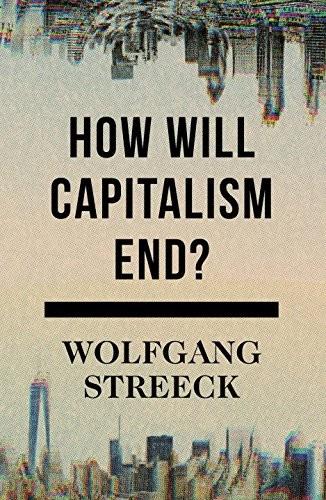
How Will Capitalism End?
by
Wolfgang Streeck
Published 8 Nov 2016
Product differentiation in particular, made possible by new production technology as well as new methods of advertisement, especially in the new, allegedly ‘social’, media, produces a kind of social integration that allows for a combined sense of individual singularity and collective identity in a community of customers, united in the consumption of continuously upgraded individualized commodities. Summing up, social life and capital accumulation in the post-capitalist interregnum depend on individuals-as-consumers adhering to a culture of competitive hedonism, one that makes a virtue out of the necessity of having to struggle with adversity and uncertainty on one’s own. For capital accumulation to continue under post-capitalism, that culture must make hoping and dreaming obligatory, mobilizing hopes and dreams to sustain production and fuel consumption in spite of low growth, rising inequality and growing indebtedness.
…
Without supportive institutions, the burden of organizing everyday life is moved from the macro- to the micro-level, meaning that the onus of securing a minimum of stability and certainty – of creating a modicum of social order – is shifting to the individual.60 The behavioral programme of the post-social society during the post-capitalist interregnum is governed by a neoliberal ethos of competitive self-improvement, of untiring cultivation of one’s marketable human capital, enthusiastic dedication to work, and cheerfully optimistic, playful acceptance of the risks inherent in a world that has outgrown government. That this programme is dutifully implemented is essential, as the reproduction of the post-capitalist society lite hangs on the thin thread of an accommodating repertoire of individual action filling the widening gaps in the society’s systemic architecture.
…
See capitalist political economy decoupling of democracy from, 20–4, 128, 130, 141 democratic-capitalist political economy, 83 globalization as giving birth to TINA logic of, 23 public sociology as return to, 245–9 political goods, 107 political legitimacy, 16, 22, 106, 192 political participation, 107, 109, 110, 111, 140, 141, 186, 187, 193, 247 political parties, 109, 110, 111, 250 political reform, as potential stabilizing force, 13 political relations, compared to market relations, 108 politics of consumption, 102, 105 as consumption, 109–12 disjointedness of, 110 of immaterial economic needs, 212 migration from into markets, 109 as much-needed resource against markets, 77 of the political, 105 populist parties, 21, 26, 35, 52, 92, 187f Porto Alegre, 6, 12, 36 Portugal, suspension of democracy in, 94 possessive individualism, 63, 229 post-capitalist interregnum, 14, 38, 41, 45, 46 post-capitalist society lite, 38 post-democracy, birth of, 22 post-social society, 13, 38 power elite, 67, 94 private debt, replacement of public debt with, 84, 85 privatized Keynesianism, 84, 85, 119 product differentiation, 45, 99, 100, 111 product diversification, 96, 99, 101, 107, 108 product markets, 96, 97, 98, 106 product ranges, re-engineering/customization of, 98, 99 professional athletics, corruption in, 33 progressive society, 1 Protestantism, 70 public austerity, 85, 133, 134, 136.
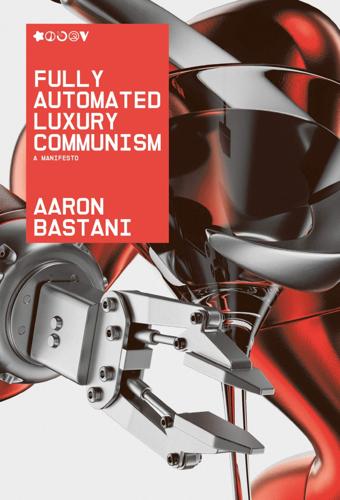
Fully Automated Luxury Communism
by
Aaron Bastani
Published 10 Jun 2019
Office for National Statistics, 31 January 2014. Turchin, Peter. ‘The End of Prosperity: Why Did Real Wages Stop Growing in the 1970s?’ Evolution Institute, 4 April 2013. Post-Capitalism and Information: Peter Drucker Drucker, Peter. Post-Capitalist Society. Butterworth-Heinemann, 1998. Marx, Karl. A Contribution To the Critique of Political Economy. Progress Publishers, 1977. Taylorism and the Productivity Revolution Drucker, Peter. Post-Capitalist Society. Butterworth-Heinemann, 1998. Marx, Karl. Grundrisse. Penguin, 1993. Information Goods Want to Be Free – Really DeLong, J. Bradford and Lawrence Summers.
…
As he wrote in 1993, ‘that knowledge has become the resource rather than a resource, is what makes our society post-capitalist … it creates new social dynamics. It creates new economic dynamics. It creates new politics.’ Drucker believed that society went through such rearrangements regularly, with Western history showing a ‘sharp transformation’ every several hundred years. All of which meant that within a few short decades, ‘society re-arranges itself – its world view; its basic values; its social and political infrastructure; its arts; its key institutions. Fifty years later there is a new world’. Drucker believed the shift to post-capitalism to be one such transformation.
…
These two trends – of deflationary prices in the market economy and production of more free things in its non-market equivalent – will ultimately render GDP irrelevant as a means to measure people’s quality of life, especially once the post-capitalist state accelerates such tendencies. That, alongside the implementation of UBS, means GDP will only deteriorate as a significant measure of anything, as limited as it already was. What is more it will fail to calculate those things that matter most in the context of the five crises, including atmospheric CO2, the health and lifespan of the elderly, environmental degradation, access to clean air and drinking water, mental wellbeing and work that is socially and emotionally satisfying. Which is why the post-capitalist state would move towards an ‘Abundance index’ accounting for all of this, while integrating the emerging economic model of ever fewer things paid for with money.
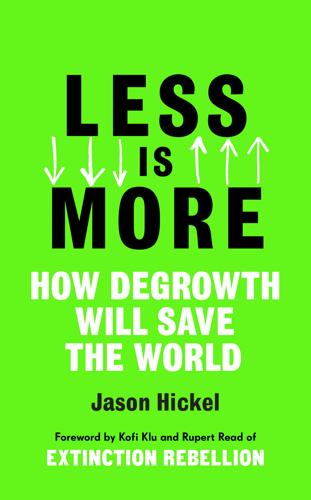
Less Is More: How Degrowth Will Save the World
by
Jason Hickel
Published 12 Aug 2020
In the United Kingdom, a campaigning group called Positive Money has built a movement around the idea, and now it’s being picked up as another possible step towards a more ecological economy.54 A post-capitalist imaginary When people talk about ‘overthrowing’ or ‘abolishing’ capitalism, it can leave us with a real sense of unease about what will come afterwards. It’s easy to feel angry about our economic system, especially as we watch our planet die, but those who call for revolution all too rarely define what the new society might look like. It makes the future seem scary and unpredictable – who knows what nightmares might fill the void? But when we focus on how to release our system from the growth imperative, we begin to get a sense of what a post-capitalist economy might look like.
…
Jason Hickel * * * LESS IS MORE How Degrowth Will Save the World Table of Contents PREFACEBy Kofi Mawuli Klu and Rupert Read of XR INTRODUCTIONWelcome to the Anthropocene Part OneMore is Less ONECapitalism – A Creation Story TWORise of the Juggernaut THREEWill Technology Save Us? Part TwoLess is More FOURSecrets of the Good Life FIVEPathways to a Post-Capitalist World SIXEverything is Connected Acknowledgements Endnotes About the Author Jason Hickel is an economic anthropologist, Fulbright Scholar and Fellow of the Royal Society of Arts. He is originally from Eswatini (Swaziland) and spent a number of years with migrant workers in South Africa, writing about exploitation and political resistance in the wake of apartheid.
…
To get there, we need to rethink everything from the debt system to the banking system, to liberate people, businesses, states and even innovation itself from the stuffy constraints of the growth imperative, freeing them to focus on higher goals. As we take practical steps in this direction, exciting new possibilities come into view. We can create an economy that is organised around human flourishing instead of around endless capital accumulation; in other words, a post-capitalist economy. An economy that’s fairer, more just, and more caring. These ideas have been percolating on different continents for the past few decades, like whispers of hope. We inherit them from people like Herman Daly and Donella Meadows, the pioneering founders of ecological economics; from philosophers like Vandana Shiva and André Gorz; social scientists like Arturo Escobar and Maria Mies; economists like Serge Latouche and Indigenous activists like Berta Cáceres.48 Suddenly these ideas are rushing into the mainstream, and inspiring an extraordinary shift in scientific discourse.
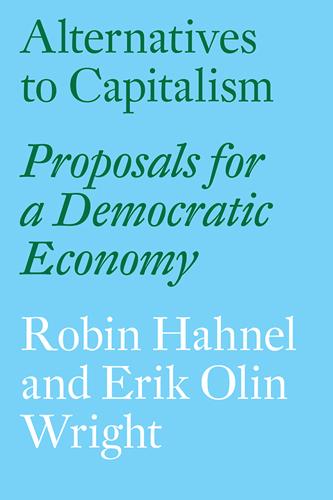
Alternatives to Capitalism
by
Robin Hahnel
and
Erik Olin Wright
New arguments and ideas surface in each of the six contributions, while key issues are revisited throughout and subjected to sustained evaluation. The result is a work that, even as it covers a range of issues in economics, social theory and history, achieves a rare degree of depth and thoroughness. Important points of disagreement emerge. These concern, among other things, the level of detail to which post-capitalist visions should aspire, the future of markets, and whether a revolutionary strategy has a credible role to play in anti-capitalist politics. Readers will have to make their own judgments about the competing arguments on these issues—a task made easier by the constructive spirit with which Erik and Robin pursue their disagreements, with no time wasted on straw-manning or point scoring.
…
Where we differ is in our views of certain important aspects of the institutional design of an alternative that is best suited to realize these common values. Robin feels very confident that a complex, large-scale, well-functioning economic system—in principle even a global economy—could exist in which markets have been completely replaced by participatory planning. While he acknowledges that the actual design of economic institutions in a post-capitalist participatory economy will evolve through experimentation and democratic deliberation, he nevertheless argues that the goal should be the complete elimination of markets, and his hypothesis is that such an economy would function in ways that would be robustly sustainable. Sustainability, in the context of a democratic-egalitarian economy, means that the institutional configuration in question would be continually endorsed by the broad majority of participants in the economy since they have the power to change the rules of the game if they don’t like the way things are working.
…
For this reason, I think it would be better to call these public goods councils than consumption councils.8 Unlike the planning for household consumption, public goods planning at whatever level it occurs requires real public deliberation: meetings, debates, bargaining, formulation of plans for specific projects, etc. Participatory planning of public goods—at the neighborhood level and beyond—will be a critical feature of a post-capitalist, democratic-egalitarian economy, especially because it is likely that the balance between private and public consumption will shift considerably in the public direction. Planning such public goods in a deeply democratic way, however, will be arduous, not simple, because it is unlikely there will be a smooth consensus over the balance between household consumption and public goods or over the specific mix of public goods.
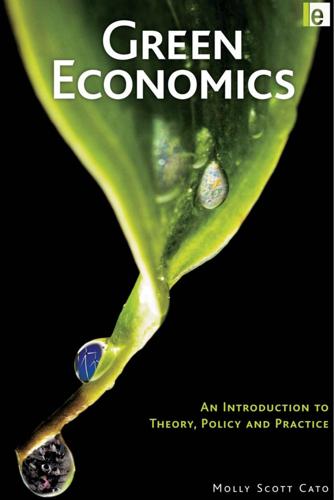
Green Economics: An Introduction to Theory, Policy and Practice
by
Molly Scott Cato
Published 16 Dec 2008
Kennett (eds) Green Economics: Beyond Supply and Demand to Meeting Human Needs, Aberystwyth: Green Audit. 29 M. Max-Neef (1981) From the Outside Looking In: Experiences in Barefoot Economics, Uppsala: Dag Hammarskjöld Foundation. 30 See the brief description of Gandhi’s contribution to economics in M. S. Cato (2006) Market, Schmarket: Building the Post-Capitalist Economy, Gretton: New Clarion Press, pp. 173–5. 31 M. Mies and V. Shiva (1993) Ecofeminism, London: Zed, p. 100. 32 Quoted in Henderson, Solar Age, p. 175. 33 Henderson, Solar Age, p. 184. 34 Information about the AHE and PAE can be found via their websites: www.open.ac.uk/socialsciences/hetecon/ for the Association of Heterodox Economics and www.paecon.net/ for the Post-Autistic Economics network. 3 Economics and Identity Even today, it is heretical to suggest that economic growth, of which international trade is an increasing part, is constrained by any fundamental limits like the management of the natural capital of the atmosphere.
…
Hutchinson, M. Mellor and W. Olsen (2002) The Politics of Money: Towards Sustainability and Economic Democracy, London: Pluto, p. 160. 9 J. Robertson (1985) Future Work: Jobs, Self-Employment and Leisure after the Industrial Age, London: Gower. 10 M. S. Cato (2006) Market, Schmarket: Building the Post-Capitalist Economy, Gretton: New Clarion Press. 11 V. Fournier (2007) ‘Escaping from the economy: The politics of degrowth’, paper presented to the research seminar of Cardiff School of Management, February. 12 P. Aries (2005) Décroissance ou Barbarie?, Lyon: Golias. ECONOMICS AND IDENTITY 51 13 S. Latouche (2003) ‘Le Marché, l’agora et l’acropole: Se rapproprier le marché’, Refractions, 9: 17–26. 14 Fournier, ‘Escaping’, p. 13. 15 R.
…
that work satisfaction is highest when a firm is owned and controlled by those working in it.28 The emphasis on maintaining one’s power in the work environment relates back to the work of James Robertson: The direct way to enlarge people’s freedom to change the kinds of paid work they regard as valuable and to organize it for themselves under their own control is to alter the conditions in which paid work is done … The creation of many more co-operatives and community businesses, the conversion of existing companies and other organizations into these forms, and their acceptance as normal parts of the mainstream economy, will bring wider opportunities for people to work together in pursuit of their own shared aims and values.29 In seeking ways of restructuring the post-capitalist economy, green economists have found inspiration in medieval economics,30 specifically the idea of the ‘just price’31 and the guild system. The idea of the just price was defined by St Thomas Aquinas in terms of the labour and costs of the producer. This outlawed the gaining of profits by middlemen, since only remuneration in return for just labour was acceptable, and prices should be sufficient only to allow the craftsman or trader to enjoy a standard of life suitable to his station.
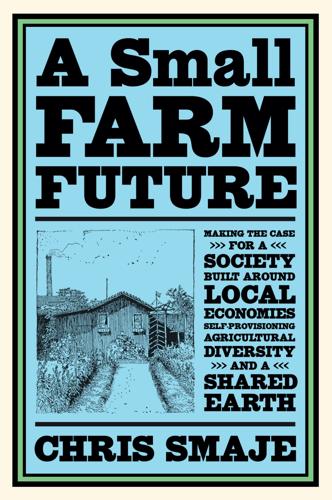
A Small Farm Future: Making the Case for a Society Built Around Local Economies, Self-Provisioning, Agricultural Diversity and a Shared Earth
by
Chris Smaje
Published 14 Aug 2020
There are more important things to focus on. Perhaps this techno-obsessiveness is a clue that the vision of a world without work is less post-capitalist than simply a mirror of capitalism, with the same drive to improve technology, release labour and increase control. A more nuanced and less one-sidedly negative view of work is possible, which may be just as well, since present levels of agricultural mechanisation probably won’t be feasible in the post-capitalist future. Nor, I suspect, will they be widely desired. The greater challenge will be to create congenial and equitable societies able to absorb a lot of human labour in low-carbon enterprises, in which farming (or, better, gardening) will loom large.
…
In an influential recent book Nick Srnicek and Alex Williams criticise what they call folk politics – the domain of the ‘small-scale, the authentic, the traditional and the natural’, its ‘guiding intuition that immediacy is always better and often more authentic, with the corollary being a deep suspicion of abstraction and mediation’. For them, by contrast, there is ‘no authentic human essence to be realised, no harmonious unity to be returned to, no unalienated humanity obscured by false mediations, no organic wholeness to be achieved’. Seeking a left-wing, post-capitalist alternative to the present neoliberal moment in global politics, they argue that ‘given neoliberalism’s inherently expansionary nature, only an alternative expansionary and inclusive universal of some kind will be able to combat and supersede capitalism on a global scale.… Whereas folk-political approaches lack an enticing vision of the future’.
…
Even feminist utopias like Charlotte Perkins Gilman’s Herland (1915) replicated now outmoded thinking about racial and genetic hierarchies while presciently reconfiguring gender relations in more contemporary terms. What leaden-footed assumptions of the present will our contemporary utopias turn out to have made? My punt is on human liberation through automation. I won’t sidetrack here into a full-blown discussion of technological futurism, but it strikes me that a post-capitalist world without work is unlikely to materialise soon, if ever. A slowing in the growth machine of global industrial output, challenging energy dynamics, declining rewards to global labour, perturbations to the global political economy from the crises we’ve examined and the difficulty of untethering technology from capitalist control all point to, at best, a much more limited liberation arising from labour-saving technology than these utopias typically imagine.150 Besides, why the constant emphasis on saving labour in these high-tech utopias?

The Global Auction: The Broken Promises of Education, Jobs, and Incomes
by
Phillip Brown
,
Hugh Lauder
and
David Ashton
Published 3 Nov 2010
Hall and David Soskice (eds.), Varieties of Capitalism: The Institutional Foundations of Comparative Advantage (New York: Oxford University Press, 2001), 442. 2. See Peter F. Drucker, Post-Capitalist Society (New York: HarperCollins, 1993). Taylor’s ideas will be discussed later in the chapter. 3. As Peter F. Drucker observed, “the only thing that increasingly will matter in national as well as in international economics is management’s performance in making knowledge productive.” Post-Capitalist Society, 176. 172 Notes to Pages 59–66 4. 5. 6. 7. 8. 9. 10. 11. 12. 13. 14. 15. 16. 17. 18. 19. 20. 21. 22. 23. 24. Ibid., 40. Thomas Friedman, The World Is Flat (New York: Penguin, 2005), 200.
…
Moreover, it is not difficult to see how by sleight of hand “learning is earning” eliminated the inconvenient fact that you need to be in a job to earn (unless self-employed) and that some appear to be overpaid for their talents whereas many more are undervalued. 9. Daniel Bell, The Coming of Post-Industrial Society (New York: Penguin, 1973), 409. 10. Peter Drucker, Post-Capitalist Society (New York: HarperCollins, 1993), 22. 11. Sumantra Ghoshal and Christopher A. Bartlett, The Individualized Corporation: A Fundamentally New Approach to Management (London: Random House, 2000), 8. 12. Michael B. Arthur and Denise M. Rousseau (eds.), The Boundaryless Career: A New Employment Principle for a New Organizational Era (New York: Oxford University Press, 1996). 13.
…
Taylor, Principles of Scientific Management (New York: Harper and Brothers, 1911), chap. 2, p. 6. http://www.archive.org/details/ principlesofscie00taylrich. Peter Drucker argues, “Few figures in intellectual history have had greater impact than Taylor. And few have been so willfully misunderstood and so assiduously misquoted.” Drucker, Post-Capitalist Society, 31. See Robert Kanigel, The One Best Way: Frederick Winslow Taylor and the Enigma of Efficiency (London: Abacus 1997), 9. Frederick W. Taylor quoted in Robert Kanigel, The One Best Way, 473. Frederick W. Taylor, The Principles of Scientific Management, chap. 2, p. 4. http:// www.archive.org/details/principlesofscie00taylrich Ibid., 2. http://www.archive.org/details/principlesofscie00taylrich See Kanigel, The One Best Way, 460.
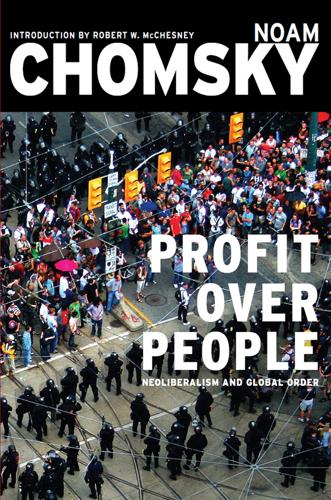
Profit Over People: Neoliberalism and Global Order
by
Noam Chomsky
Published 6 Sep 2011
It is true that it remains unclear how to establish a viable, free, and humane post-capitalist order, and the very notion has a utopian air about it. But every advance in history, from ending slavery and establishing democracy to ending formal colonialism, has had to conquer the notion at some point that it was impossible to do because it had never been done before. And as Chomsky hastens to point out, organized political activism is responsible for the degree of democracy we have today, for universal adult suffrage, for women’s rights, for trade unions, for civil rights, for the freedoms we do enjoy. Even if the notion of a post-capitalist society seems unattainable, we do know that human political activity can make the world we live in vastly more humane.
…
Throughout these years Chomsky, who could be characterized as an anarchist or, perhaps more accurately, a libertarian socialist, was a vocal, principled, and consistent democratic opponent and critic of Communist and Leninist political states and parties. He educated countless people, including myself, that democracy is a non-negotiable cornerstone of any post-capitalist society worth living in or fighting for. At the same time, he has demonstrated the absurdity of equating capitalism with democracy, or of thinking that capitalist societies, even under the best of circumstances, will ever open access to information or decision making beyond the most narrow and controlled possibilities.

Ours to Hack and to Own: The Rise of Platform Cooperativism, a New Vision for the Future of Work and a Fairer Internet
by
Trebor Scholz
and
Nathan Schneider
Published 14 Aug 2017
And I have no doubt about the vision of platform owners like Travis Kalanick (Uber), Jeff Bezos (Amazon), or Lukas Biewald (CrowdFlower)—who, in the absence of government regulation and resistance from workers, will simply exploit their undervalued workers. I’m all on board for Paul Mason’s and Kathi Weeks’ visions for a post-capitalist, post-work future where universal basic income will rule the way we think about life opportunities. In the United States, however, unlike in Finland, the chances for this scenario becoming a reality over the next two years are not high. The question then becomes what we can do right now, with and for the most precarious among the contingent third of the American workforce, which is unlikely to see the return of the traditional safety net, the forty-hour workweek, or a steady paycheck.
…
In fact, horizontality and decentralization—the very characteristics that peer production prizes so highly—have emerged as an ideal solution to many of the impasses of liberal economics. Today, Silicon Valley appropriates so many of the ideas of the left—anarchism, mobility, and cooperation—even limited forms of welfare. This can create the sense that technical fixes like the blockchain are part of some broader shift to a post-capitalist society, when this shift has not taken place. Indeed, the blockchain applications that are really gaining traction are those developed by large banks in collaboration with tech startups—applications to build private blockchains for greater asset management or automatic credit clearing between banks, or to allow cultural industries to combat piracy in a distributed network and manage the sale and ownership of digital goods more efficiently.
…
CONTRIBUTORS Michel Bauwens is the founder of the P2P Foundation and partner with the Commons Strategies Group. In 2014, he was research director of the FLOK Society project, which produced the first integrated Commons Transition Plan for the government of Ecuador. His recent books are Save the World: Towards a Post Capitalist Society with P2P (with Jean Lievens, in French and Dutch); and Network Society and Future Scenarios for a Collaborative Economy (with Vasilis Kostakis; Palgrave Macmillan, 2014). Yochai Benkler is the Berkman Professor of Entrepreneurial Legal Studies at Harvard Law School, and faculty co-director of the Berkman Center for Internet and Society at Harvard University.

The Ministry for the Future: A Novel
by
Kim Stanley Robinson
Published 5 Oct 2020
So we took over the city, Paris was ours by way of sheer bodies jamming the streets. And of course some of us had read about the Commune and realized if we didn’t win decisively we would be hunted down and killed, or at best jailed for life. So at that point it was win or die, and we buckled down to making it work as an alternative system of life, a kind of commons that was post-capitalist, even post-money, just people doing what it took to keep everyone fed. And I must say, so many Parisians came out and helped us, cooked food, provided rooms, manned the barricades in every way, that again we had to realize that it wasn’t just those of us in the streets, it was all France, maybe even the world, we couldn’t tell.
…
Keynes meant by this the people who made money simply by owning something that others needed, and charging for the use of it: this is rent in its economic meaning. Rent goes to people who are not creators of value, but predators on the creation and exchange of value. So “the euthanasia of the rentier class” was Keynes’s way of trying to describe a revolution without revolution, a reform of capitalism in his time, toward whatever subsequent post-capitalist system might follow. It was his evaluation of the parts of the already-existing system, for their possible use value in a future civilization. He did not suggest ending capitalism; just end rent, and rentiers. Although that very well might come to the same thing in the end. He might have been using a euphemism to conceal the shock of his suggestion.
…
Local currencies were proposed and introduced, backed by the town one lived in; but the town needed local banks; and the local banks needed central banks. A lively set of exchanges nevertheless began in many local regions, often watersheds big enough to support their populations; and people began to use their YourLock accounts as sites for digital microbanking that was of some real use, and showed potential for some kind of post-capitalist crowd banking. But all this was too new, too provisional; there were too many people, and all of them strangers. Despite all the interesting efforts, as the economy circled the drain, it became clearer: for this moment, it was the central banks or nothing. They were the Dutch boy’s finger plugging the leak, the last stitch that might stop the hemorrhaging.
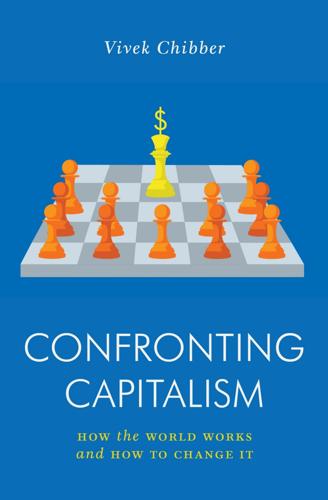
Confronting Capitalism: How the World Works and How to Change It
by
Vivek Chibber
Published 30 Aug 2022
Organizational Lessons There are two broad legacies of the Russian Revolution—an organizational and an institutional one. By organizational, I mean issues pertaining to building vehicles for collective action in capitalism—unions, parties, and the like. By institutional, I mean the basic structures that will comprise a post-capitalist society—the political system, economic organization, the structure of rights. The organizational dimension pertains to how you build power inside capitalism, and the institutional to what you will build after capitalism. Let’s start with a few key organizational elements: a working-class party’s internal structure, the relationship of that party to its base, and its socialist strategic vision.
…
Any discussion has to proceed with a close examination of the Soviet experience, to try to assess if its failure owed to the particular way planning was instituted, or whether the lesson is that a modern industrial economy is just not amenable to planning. It’s quite astonishing how little attention this issue gets on the Left today, compared with, say, the energy poured into deconstructing Bollywood movies. In any case, given the dubious record of central planning, we have to seriously consider that a post-capitalist economy might have to take the form of some sort of market socialism. There are many models on the Left of this kind of economy, and they all have different features. What’s important is that whatever the market socialism’s institutional structure, the principles underlying its design are faithful to what socialists seek—of putting people before profits.
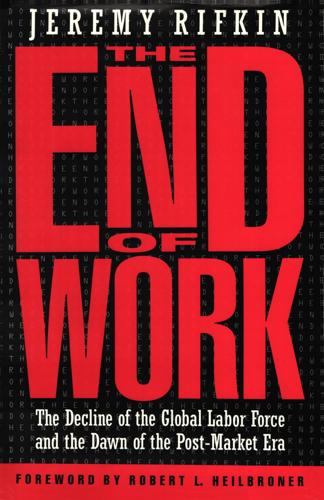
The End of Work
by
Jeremy Rifkin
Published 28 Dec 1994
They are the ones who wait tables, cook meals, sell everything from office supplies to clothing, change beds and bath linen in the dozens of new hotels, provide custodial service and child care and find lower-level employment in the city's hospitals, health clinics, schools, and municipal government itself."45 Peter Drucker has warned his business colleagues that the critical social challenge facing the emergent information society is to prevent a new "class conflict between the two dominant groups in the post-capitalist society: knowledge workers and service workers."46 Drucker's concerns are likely to become even more pronounced in the years ahead, as an increasing number of service jobs now performed by the working class are replaced by machines, forcing even more workers into the growing urban underclass.
…
Attali, Jacques, Millennium: Winners and Losers in the Coming World Order (New York: Random House, 1991), p. 101. 15. Barlett, Donald L., and Steele, James B., America: What Went Wrong? (Kansas City: Andrews and McMeel, 1992), p. xi. 16. "Germany Fights Back," p. 49. 17. Barlett and Steele, p. 18; Drucker, Peter F., Post-Capitalist Society (New York: HarperColiins, 1993), p. 68. 18. Krugman, Paul, and Lawrence, Robert, "Trade, Jobs and Wages," Scientific American, April 1994, pp. 46, 47. 19. "The Myth of Manufacturing's Decline," Forbes, January 18,1993, p. 40; Judis, John, "The Jobless Recovery," The New Republic, March 15, 1993, p. 22. 20.
…
Kenney, Martin, and Florida, Richard, Beyond Mass Production: The Japanese System and Its Transfer to the US. (New York: Oxford University Press, 1993), p. 3. 19. Ibid. 20. Ibid., p. 189. 21. Reich, Robert, The Work of Nations: Preparing Ourselves for 21St Century Capitalism (New York: Vintage Books, 1992), pp. 214-215. 22. Drucker, Peter, Post Capitalist Society (New York: HarperCollins, 1993) pp. 72-7$ "Why Job Growth Is Stalled," Fortune, March 8, 1993, p. 51. 23. Drucker, p. 72. 24. Kenney and Florida, pp. 171, 173. 25. van Liemt, p. 202. 26. Ibid., p. 314. 27. Statistics from the International Association of Machinists, May 1994. 28. Winpisinger, William, Reclaiming Our Future: An Agenda for American Labor (San Francisco: Westview Press, 1989), pp. 149-150. 29.
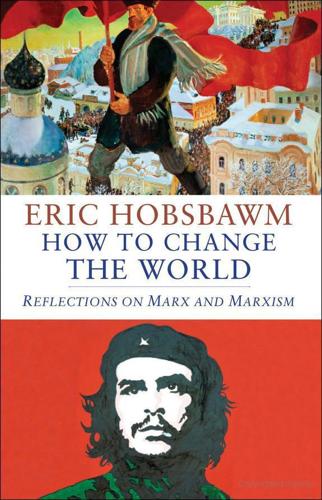
How to Change the World: Reflections on Marx and Marxism
by
Eric Hobsbawm
Published 5 Sep 2011
Unquestionably this is no longer the case in modern capital-intensive high-tech production, a development not considered in the Manifesto, though in fact in his more mature economic studies Marx himself envisaged the possible development of an increasingly labourless economy, 113 How to Change the World at least in a post-capitalist era. 15 Even in the old industrial economies of capitalism, the percentage of people employed in manufacturing industry remained stable until the 1970s, except for the USA, where the decline set in a little earlier. Indeed, with very few exceptions such as Britain, Belgium and the USA, in 1970 industrial workers probably formed a larger proportion of the total occupied population in the industrial and industrialising world than ever before.
…
Or, to quote the later Marx, when ‘centralisation of the means of production and the socialisation of labour at last reach a point where they become incompatible with their capitalist integument’ and that ‘integument is burst asunder’. 25 By what name the subsequent state of affairs is described is immaterial. However, as the effects of the world economic explosion on the world environment demonstrate, it will necessarily have to mark a sharp shift away from private appropriation to social management on a global scale. It is extremely unlikely that such a ‘post-capitalist society’ would correspond to the traditional models of socialism, and still less to the ‘really existing’ socialisms of the Soviet era. What forms it might take, and how far it would embody the humanist values of Marx’s and Engels’ communism, would depend on the political action through which this change came about.
…
Yet while both committed Marxists and sympathetic critics agreed that in the 1930s Marxism ‘still contributed a coherent though inadequate explanation of the world economic crisis and the fascist challenge’ (Lichtheim), or that ‘the Great Depression of the 1930s accorded admirably with Marxian theory’ (Baran and Sweezy), 13 both also agreed that ‘it has not been more successful than liberalism in formulating a theory of post-capitalist society’ (Lichtheim) or ‘contributed significantly to our understanding of some of the major characteristics of the “affluent society”’ (Baran and Sweezy). For the best part of a generation most Marxists had failed, or hesitated, to confront the realities of the world they wished to transform.
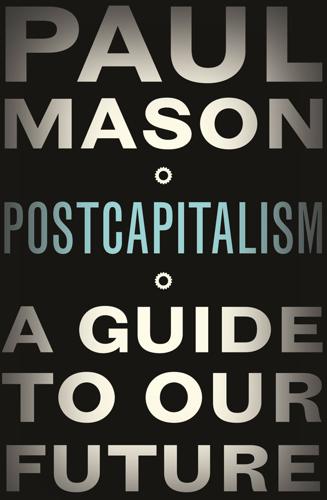
Postcapitalism: A Guide to Our Future
by
Paul Mason
Published 29 Jul 2015
DRUCKER: ASKING THE RIGHT QUESTIONS In 1993, the management guru Peter Drucker wrote: ‘That knowledge has become the resource, rather than a resource, is what makes our society “post-capitalist”. It changes, and fundamentally, the structure of society. It creates new social dynamics. It creates new economic dynamics. It creates new politics.’7 At the age of ninety, the last surviving pupil of Josef Schumpeter had jumped the gun a little, but the insight was correct. Drucker’s case rests on the assertion that the old factors of production – land, labour and capital – have become secondary to information. In his book Post-Capitalist Society, Drucker argued that certain norms essential to capitalism were being replaced.
…
Lee et al, ‘Aviation and Global Climate Change in the 21st Century’, Atmospheric Aviation, vol. 43, 2009, pp. 3520–37 4. M. Gell et al, ‘The Development of Single Crystal Superalloy Turbine Blades’, Superalloys, 1980, p. 205 5. http://www.mtu.de/en/technologies/engineering_news/others/Sieber_Aero_Engine_Roadmap_en.pdf 6. Data on the Balance Sheet, SAS Institute/CEBR, June 2013 7. P. Drucker, Post-capitalist Society (Oxford, 1993), p. 40 8. Ibid., p. 175 9. Ibid., p. 193 10. Y. Peng, ‘Internet Use of Migrant Workers in the Pearl River Delta’, in P.-L. Law (ed.), New Connectivities in China: Virtual, Actual and Local Interactions (Dordrecht, 2012), p. 94 11. P. Romer, ‘Endogenous Technological Change’, Journal of Political Economy, vol. 98, no. 5, pt 2 (1990), pp.
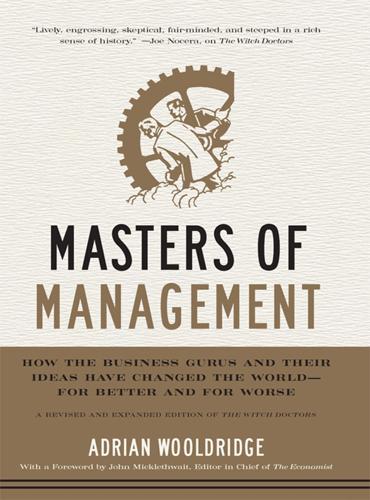
Masters of Management: How the Business Gurus and Their Ideas Have Changed the World—for Better and for Worse
by
Adrian Wooldridge
Published 29 Nov 2011
Would America’s bosses be sacking their workers with one hand, while awarding themselves huge pay raises with the other, if they understood Drucker’s arguments about the social nature of firms? Other criticisms have more force. Drucker sometimes manages to be both simplistic and obscure at the same time. He repeatedly states that humans live in a society of organizations but fails to make clear what this means. In Post-Capitalist Society, he complains that the United States has embraced pension-fund socialism, but his comments are presented more as a play on words than a deep analysis of American society. In a broad sense, he is right: the real bosses are not the likes of John D. Rockefeller and J. P. Morgan, but the workers themselves.
…
Edwards, 4, 230, 319, 415 Deshpande, Ravi, 183 Diageo, 217–218 Dimon, James, 402 The Discipline of Market Leaders (Treacy and Wiersema), 29–30, 31 Disney, 162–163, 298, 302, 353 Disrupting Class: How Disruptive Innovation Will Change the Way the World Learns (Christensen), 328 Docquier, Frédéric, 375 Doing Business, 191–192, 199, 205 Dolman, Edard, 404 Donovan, Dennis, 381 Dow Jones Sustainability Index, 34, 293 Doz, Yves, 56, 152 Dragon’s Den, 191 Draper, Simon, 195 Drax, 304 Dress for Success, 48 Drucker, Doris, 397 Drucker, Peter, xv, 9, 16, 22, 26, 56, 69, 75–94, 100, 234, 292, 309, 316–317, 318, 333, 379–380, 392, 393, 396–398, 411 biography of, 81–82 The Concept of the Corporation, 81–82, 84–85, 89–90 The Effective Executive in Action, 76 on employee self-management, 83–85 The End of Economic Man, 81 on entrepreneurs, 193–194 The Future of Industrial Man, 81 on globalization, 91 Innovation and Entrepreneurship, 90 Management: Tasks, Responsibilities, Practices, xi–xii Managing in a Time of Great Change, 93 Post-Capitalist Society, 89 The Practice of Management, 85–86 Drucker Institute, 76 DuPont, 279 East African Breweries, 217–218 Easterbrook, Gregg, 137 East India Company, 376, 418 eBay, 163, 206 “Ecomagination Strategy,” 36 Economic crisis of 2007–08, 14, 270, 292, 325, 364 of 2008–09, 11 The Economist, xiv, 33, 60, 121, 151, 169, 396 Edison, Thomas, 239 EDS.
…
Michael Jensen and William Meckling, “Theory of the firm: Managerial behavior, agency costs and ownership structure,” Journal of Financial Economics, vol. 3, no. 4 (1976). 2. Charles Handy, Beyond Certainty: The Changing Worlds of Organizations (London: Hutchinson, 1995), p. 105. 3. Peter Drucker, Post-Capitalist Society (New York: Harper Paberbacks, 1993), p. 73. 4. Richard Lambert speech to RSA, Financial Times, March 30, 2010. 5. Roger Martin, “The Age of Customer Capitalism,” Harvard Business Review, January–February 2010. 6. Stefan Stern, “Outsider in a hurry to shake up Unilever,” Financial Times, April 4, 2010. 7.
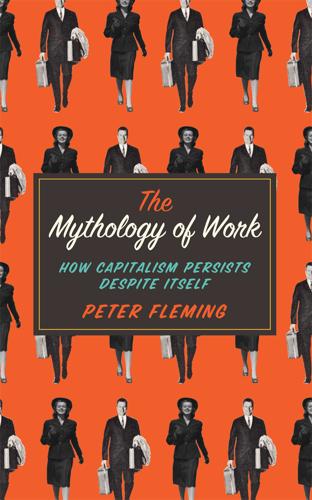
Mythology of Work: How Capitalism Persists Despite Itself
by
Peter Fleming
Published 14 Jun 2015
This book offers a number of suggestions about how to refuse the ideology of work today. Most importantly, we must remember that neoliberalism is largely a quantitative extension of a basic fixture of capitalist power relations present from the very beginning: class domination. Therefore, collective action must still remain the most important weapon of the post-capitalist movement. But class domination has proliferated in unexpected ways, bleeding into methods of management that are qualitatively different. In ways that it never did to factory workers under Fordism, regulation today has infiltrated everyday lives and sensibilities, scrambling our conventional existential orientations and recodifying them in domains sometimes far removed from the official labour process.
…
For we can only comprehend and register false truth telling with respect to the inter-linkages that it makes with the false universalization called ‘caring capitalism’. Only then can we notice the lie hidden in the open. This is why straightforward visualization can no longer be relied upon by the democratic post-capitalist movement, as argued in Chapter 2. The totality can never be ‘revealed’ or ‘unmasked’ since the mask itself is an integral facet of its operational reality. We cannot say that BP is lying when it cuts the bullshit and truthfully defines what it means by Beyond Petroleum. And this is how the corporation mystifies its own terminal contradictions, using a certain figure of truth to conceal its own impossibility.
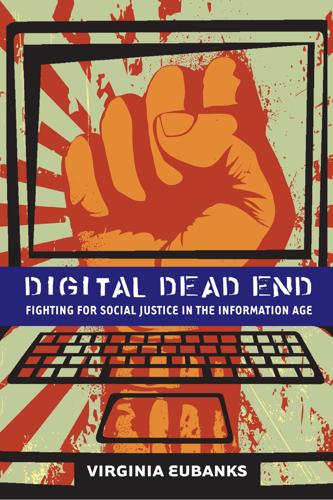
Digital Dead End: Fighting for Social Justice in the Information Age
by
Virginia Eubanks
Published 1 Feb 2011
Quality replaces quantity, knowledge replaces physical capital, and flexible networks replace rigid organization charts” (Henwood 2003, 3–4). 14. Among the most popular are Daniel Bell’s The Coming of Post-Industrial Society (1976), Alvin Toffler’s The Third Wave (1980), John Naisbett’s Megatrends (1984), Peter Drucker’s Post-Capitalist Society (1993), Bill Gates’s The Road Ahead (1996), Kevin Kelly’s Out of Control (1995) and New Rules for the New Economy (1998), Esther Dyson’s Release 2.0 (1997), Thomas Friedman’s The World Is Flat (2005), and Don Tapscott’s Wikinomics (2006). 15. Volatility is increasingly the topic of policy discussions about inequality and development.
…
References 243 Domestic Workers United. 2009. Domestic Worker’s Bill of Rights. <http://www .domesticworkersunited.org/campaigns.php> (accessed May 17, 2010). Drennan, Matthew. 2002. The Information Economy and American Cities. Baltimore, MD: Johns Hopkins University Press. Drucker, Peter F. 1993. Post-Capitalist Society. New York: HarperCollins. Dyson, Esther. 1997. Release 2.0. New York: Broadway. Ehn, Pelle. 1992. Scandinavian Design: On Participation and Skill. In Usability: Turning Technologies into Tools, ed. P. S. Adler and T. A. Winograd, 96–132. New York: Oxford University Press. Epstein, Stephen. 1998.
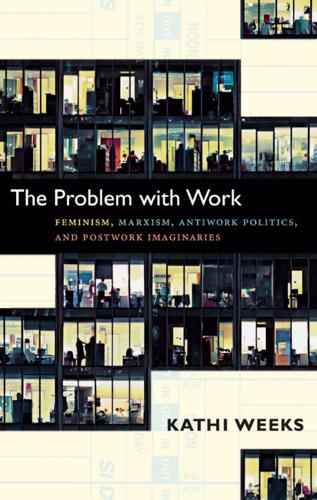
The Problem With Work: Feminism, Marxism, Antiwork Politics, and Postwork Imaginaries
by
Kathi Weeks
Published 8 Sep 2011
In addition, the assumptions of the first two approaches about the nature and value of work are extraordinarily persistent, regularly turning up in the critical frameworks and normative visions of a variety of analyses, both within and beyond the Marxist tradition. Their defenses of work and reiteration of its traditional values have yet to be fully reckoned with. SOCIALIST MODERNIZATION The utopia of modernization constitutes the characterization of a post-capitalist alternative most popularly ascribed to Marxism. In this vision, communism is equated with the full realization of the productive potential of the forces of production developed under capitalism. The critique of capital, in this version, centers on the problematic of exploitation and the contradiction between the forces and relations of production.
…
An alternative to capitalist society would require that we move beyond both abstract labor under capitalism and the modes of concrete labor that are also shaped by it. As another autonomist theorist, Harry Cleaver, reads Marx, “to speak of postcapitalist ‘useful labour’ is as problematic as to speak of the post-capitalist state” (2000, 129).5 Again, the problem is that this affirmation of labor—in this case, the useful work of particular individuals—reinforces one of the critical supports of the system it seeks to overcome. Indeed, as Gayatri Spivak observes, posing use value against exchange value is “far too Luddite a binary opposition” to account for Marx’s argument (2000, 2).
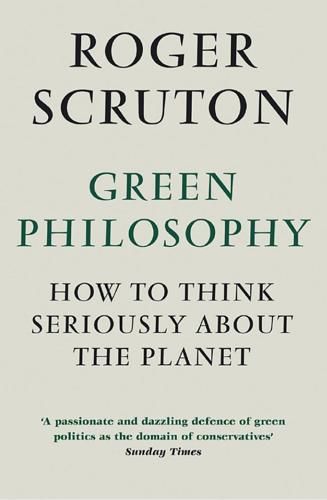
Green Philosophy: How to Think Seriously About the Planet
by
Roger Scruton
Published 30 Apr 2014
See also the same authors’ standard work on the subject: Economic Theory and Exhaustible Resources, Cambridge, 1979. 168 John V. Krutilla, ‘Conservation Reconsidered’, American Economics Review, 57, September 1967, pp. 787–96. The point has been taken up in the context of the so-called ‘knowledge economy’ by Peter Drucker, Post-Capitalist Society, New York, 1993. 169 [1868] UKHL 1. 170 See the argument of Lord Hoffmann in Transco plc v. Stockport Metropolitan Borough Council, [2003] UKHL 61, qualifying the rule in Rylands v. Fletcher. 171 See George L. Priest, ‘The Invention of Enterprise Liability: A Critical History of the Intellectual Foundations of Modern Tort Law’, Journal of Legal Studies, 14.3, December 1985, pp. 461–528. 172 DeMuth and Ginsburg, op. cit., p. 25. 173 See especially Ronald Coase, ‘The Problem of Social Cost’, Journal of Law and Economics, 3, October 1960. 174 A.
…
Dobson, Andrew, ed., Fairness and Futurity: Essays on Environmental Sustainability, Oxford University Press, 1999. Douglas, Mary, and Wildavsky, Aaron, Risk and Culture: An Essay on the Selection of Technological and Environmental Dangers, Berkeley, University of California Press, 1983. Drucker, Peter, Post-Capitalist Society, New York, Harper Business, 1993. Durkheim, Émile, tr. Joseph W. Swain, The Elementary Forms of the Religious Life, Mineola, NY, Dover, 2008. Durodié, Bill, ‘Plastic Panics: European Risk Regulation in the Aftermath of BSE’, in Morris. Dworkin, Ronald, Taking Rights Seriously, London, Duckworth, 1977.
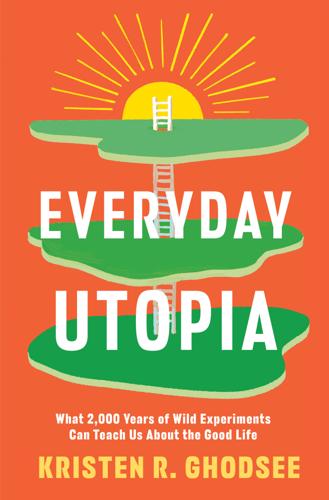
Everyday Utopia: What 2,000 Years of Wild Experiments Can Teach Us About the Good Life
by
Kristen R. Ghodsee
Published 16 May 2023
Given that cohousing in the West started as a uniquely feminist project to disrupt the nuclear family, Lidewij Tummers and Sherilyn MacGregor argue that too many cohousing developments today have been watered down or stripped of their radical histories and so “fall short of the transformation needed to build a post-capitalist and post-patriarchal society.”98 In 1892, the Russian anarchist, polymath, and prince Peter Kropotkin proposed that housing should be completely decommodified in order to ensure the true liberation of the working classes. “If the people of the Revolution expropriate the houses and proclaim free lodgings—the communalizing of houses and the right of each family to a decent dwelling… [i]t will have struck a fatal blow at individual property,” he wrote.99 Cohousing communities can challenge the idea that housing should be a commodity rather than a social good by allowing citizens to pool resources and cut out commercial property developers.
…
One example of a full-income-sharing community is the Tamera Peace Research & Education Center, which was founded by a group of Germans in 1995, based on an earlier community founded in 1978. Today, Tamera includes more than two hundred people who are “working towards autonomous decentralized models for a post-capitalist world” on 335 acres of land in southwestern Portugal.39 The community works on a gift-based economy outside of the monetary system, and 59 percent of their income flows from visitors and students who come to the community to learn about their work. Another 35 percent comes from various donations.40 Their vision of a future world is that of a “a post-patriarchal civilization free of violence and war.”
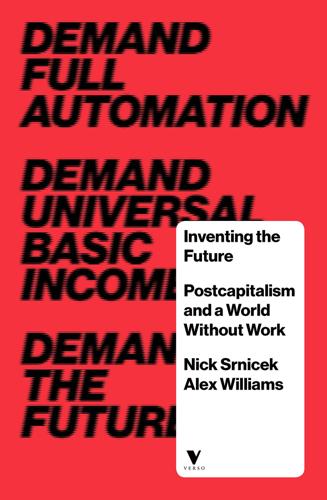
Inventing the Future: Postcapitalism and a World Without Work
by
Nick Srnicek
and
Alex Williams
Published 1 Oct 2015
Strikes, factory takeovers, slow-downs and similar tactics were all designed to disrupt the production process and force management and capitalists to acquiesce to working-class demands.9 This class – paradigmatically comprised of white, male factory workers – was therefore predicted to become large, homogeneous and powerful, making it the vanguard of a post-capitalist revolution. But this did not happen. The working class fragmented, its organisational structures fell apart, and today ‘there is no longer a class fraction that can hegemonise the class’.10 Under the combined pressures of deindustrialisation, the globalisation of production, the rise of service economies, the expansion of precarity, the demise of classic Fordist footholds and the proliferation of diverse identities, the industrial working class has become severely fractured.
…
Given the devastation such a project would bring about, and the theoretical ineptitude behind these claims, we consider this position little more than an academic curiosity. A second position instead argues that technology is the basis for a postcapitalist order, but that any meaningful focus on changing our technology should wait until after the political project of post-capitalism is achieved.75 This would undoubtedly make our task simpler, but, given the pervasive entanglement of technology with politics, and given the latent potentials in current technology, we believe the far more prudent option is to look at how developments can be redirected today, and existing technology repurposed immediately.
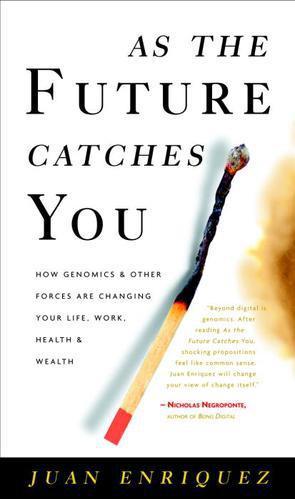
As the Future Catches You: How Genomics & Other Forces Are Changing Your Work, Health & Wealth
by
Juan Enriquez
Published 15 Feb 2001
A lot of people have written on this phenomenon of a new economy; one of my favorites is Wired editor Kevin Kelly. Many of the ideas in this chapter come from his book New Rules for the New Economy (New York: Viking, 1998). Peter F. Drucker has also been detailing these changes for decades, starting with The End of the Economic Man (1939). See also his Post-Capitalist Society (1993). 8. Robert Metcalf, founder of 3Com, argues the value of a network is proportional to the square of the number of people in it. 9. Attempting to regulate these decentralized networks is certain to give bureaucrats ulcers— or worse. See, for example, Peter Maas, “Silicorn Valley,” Wired, September 1997: 131–38. 10.
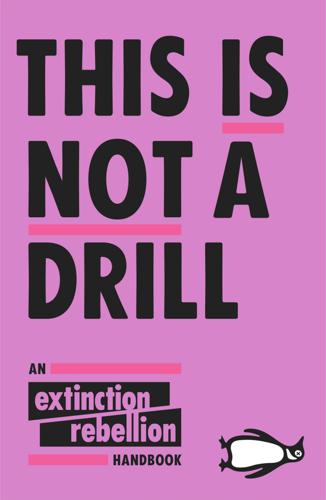
This Is Not a Drill: An Extinction Rebellion Handbook
by
Extinction Rebellion
Published 12 Jun 2019
What coalitions of actors will move us in these directions? We need three things. First, we need a new post-growth storyline – a safe and just operating space. Second, we need an ambitious post-carbon target – and to understand what the task is to comply with the Paris 1.5 target. Finally, we need post-capitalist interventions to create common and civic economies that retain community wealth and build climate-safe solutions. To unlock all this we will need huge shifts in subsidies and primary legislation to raise corporation tax, curtail corporate power and shift the burden of tax from income to land.
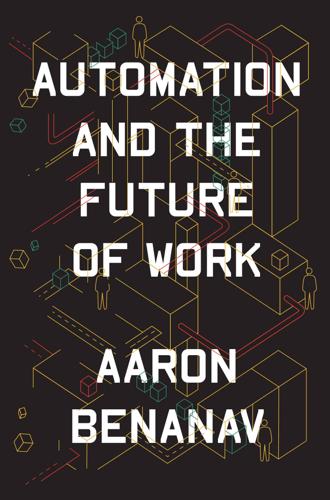
Automation and the Future of Work
by
Aaron Benanav
Published 3 Nov 2020
As I read book after book by the automation theorists, supplementing that still-growing reading list with forays into the utopian and science fiction literatures of the past, the conviction grew within me that, collectively, these authors had done more than anyone I have yet encountered to think through the logical organization of a post-capitalist society and to imagine the pathways by which we might get there. I disagreed with their analysis of the present but saw responding to their vision of the future as a way to develop my own, which by comparison with theirs was still of the dullest-possible grey. In the pages that follow, I explore possibilities for achieving a post-scarcity future without the full automation of production: by sharing the work that remains to be done in a way that restores dignity, autonomy, and purpose to working life without making work the center of our shared, social existence.

Make Your Own Job: How the Entrepreneurial Work Ethic Exhausted America
by
Erik Baker
Published 13 Jan 2025
Thanks to Angus Burgin for tipping me off to this article. 40Tom Peters, “Turning the Firm into a Marketplace,” TPG Communications, 1991, https://tompeters.com/columns/turning-the-firm-into-a-marketplace/; Tom Peters, “The Services Revolution,” TPG Communications, 1990, https://tompeters.com/columns/the-services-revolution/. 41T. George Harris, “The Post-Capitalist Executive: An Interview with Peter F. Drucker,” in Magretta, Managing in the New Economy, 165; Tom Peters, “A Day in the Life of the New American Economy,” Not Just Another Publishing Company, 1986, https://tompeters.com/columns/a-day-in-the-life-of-the-new-american-economy/; Welch, Jack, 93; William J.
…
Jones, The Machine That Changed the World: The Story of Lean Production (New York: Harper Perennial, 1991). 43Peter F. Drucker, “Sell the Mailroom,” Wall Street Journal, July 25, 1989; Tom Peters, “Subcontract Everything but Your Soul,” TPG Communications, 1990, https://tompeters.com/columns/subcontract-everything-but-your-soul/. 44Harris, “Post-Capitalist Executive,” 160; Peters, “Make No Mistake”; “America’s Leanest and Meanest.” See also Hyman, Temp; David Weil, The Fissured Workplace (Cambridge, MA: Harvard University Press, 2017). 45“Gini Index of Money Income and Equivalence: Adjusted Income 1967 to 2014,” US Census Bureau, September 16, 2015, https://www.census.gov/library/visualizations/2015/demo/gini-index-of-money-income-and-equivalence-adjusted-income--1967.html. 46Tom Peters, “A Return to Self-Reliance,” TPG Communications, 1993, https://tompeters.com/columns/a-return-to-self-reliance/. 47Ian Angell, “The Signs Are Clear: The Future Is Inequality,” The Independent, September 25, 1996. 48Olaf Isachsen, Joining the Entrepreneurial Elite: Four Styles to Business Success (Boston: Davies-Black, 1996). 49Welch, Jack, 158–162. 50James E.
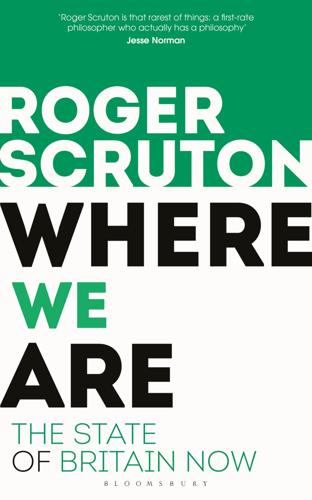
Where We Are: The State of Britain Now
by
Roger Scruton
Published 16 Nov 2017
In 2006 only one of the six most valuable companies on the Fortune 500 index was an information technology company; in 2016 only one was not such a company. Some writers – notably Paul Mason in his book Postcapitalism – see these factors as marking a fundamental shift from the old capitalist economy, based on competition in the marketplace, to a post-capitalist economy, based on the sharing of stuff that is free.4 I don’t accept that theory, which is too close to the old Marxist caricature of capitalism as a form of hierarchical control, rather than what it really is, namely the by-product of private property and risk-taking in the marketplace. Nevertheless, there is truth in the view that the new finance-based economy, dealing equally in real and unreal estate, in present and future assets, in debt and possession, has detached economic life from the real places in which it was formerly rooted.
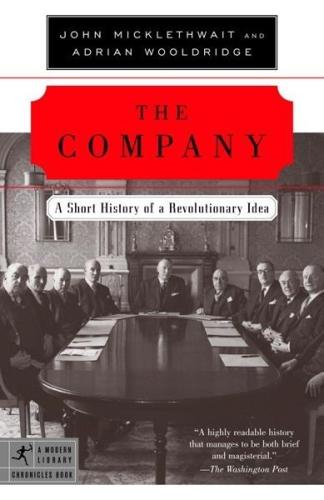
Company: A Short History of a Revolutionary Idea
by
John Micklethwait
and
Adrian Wooldridge
Published 4 Mar 2003
Jeffrey Frear, “German Capitalism,” in McCraw, ed., Creating Modern Capitalism, 142–43. 18. Ibid., 165. 19. A. E. Twentyman, “Note on the Earlier History of the Technical High Schools in Germany,” Board of Education, Special Report on Educational Subjects. Vol. 9: Education in Germany (London: His Majesty’s Stationery Office, 1902), 465. 20. Peter Drucker, Post-Capitalist Society (London: Butterworth Heinemann, 1993), 33. 21. R. B. Haldane, “Great Britain and Germany: A Study in Education,” in Education and Empire: Addresses on Certain Topics of the Day (London, 1902), 28. 22. Frear, “German Capitalism,” 140. 23. Ibid., 145–46. 24. Chandler, Scale and Scope, 500. 25.
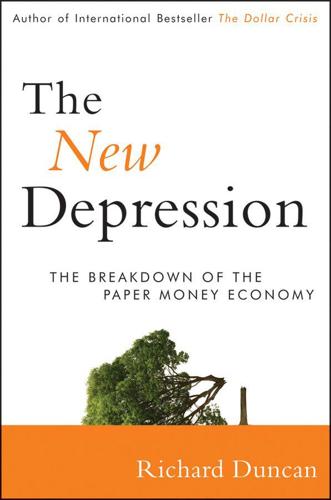
The New Depression: The Breakdown of the Paper Money Economy
by
Richard Duncan
Published 2 Apr 2012
Disaster may be averted if the United States now borrows to invest. The final chapter, Fire and Ice, explains that the U.S. economy could experience high rates of inflation, severe deflation, or both as this crisis unfolds during the years ahead; and it discusses how stocks, bonds, commodities, and currencies would be affected under each scenario. In this post-capitalist age of paper money, government policy will determine the direction in which asset prices move. The New Depression has not yet become the New Great Depression. Tragically, the odds are increasing that it will. Fiat money has a long and ignoble history of generating economic calamities. The price the United States ultimately pays for abandoning sound money may be devastatingly high, both economically and politically.

A History of Zionism
by
Walter Laqueur
Published 1 Jan 1972
Sometimes the coincidence seems striking: antisemitism sharply increased with the slump of 1873, and it fell almost equally dramatically after 1895 with the opening of a new boom. But such explanations leave many question marks, for while certain anti-Jewish attacks were triggered off by economic crises, others were of different origin; nor does this theory explain the occurrence of antisemitism in pre- and post-capitalist societies. The competitive character of capitalism provided, no doubt, an excellent breeding ground for collective dissatisfaction and insecurity, but why was it that the Jews were singled out for attack? Perhaps they were more exposed than other minorities; perhaps their influence had grown too fast?
…
According to Marx and his disciples, such as Kautsky, the Jew was the representative of modern capitalism, or to be precise, commercial capitalism, and having lost this function was bound to disappear. But this concept never made much sense in eastern Europe, where the majority of Jews was concentrated, nor does it provide an explanation for pre- and post-capitalist antisemitism. The Austrian Marxists, who faced the nationality problem in an acute form, were aware of the weakness of this aspect of Marxist theory, and provided in the works of Otto Bauer and Karl Renner a more sophisticated analysis. Whereas Kautsky had originally regarded a common language as the decisive criterion for the existence of a nation (later he added a second criterion: territory), Otto Bauer defined a nation as a community of fate, culture and character: ‘An aggregate of people bound into a community of character by a community of fate.’* The Jews were still a nation, especially those in eastern Europe, but everywhere they were in the process of ceasing to be one.
…
The course of world history has not confirmed the predictions of the optimists. If civilisation has made progress, it is agonisingly slow. National movements and nation-states are nowhere on the decline. International working-class solidarity is invoked less and less – even as a slogan. Antisemitism has antedated capitalism and still exists in post-capitalist societies. As Communism has moved from proletarian internationalism to a nationalist brand of Socialism the position of Jews under these régimes and in Communist movements will remain precarious for a long time; the demand for internationalists is strictly limited. On the contrary, the conspicuous participication of Jews in radical political movements has resulted in an upsurge of antisemitism, regardless of whether these movements attained power or not.

Speaking Code: Coding as Aesthetic and Political Expression
by
Geoff Cox
and
Alex McLean
Published 9 Nov 2012
In Yochai Benkler’s pragmatic view, peer production works because it best matches human capital to projects and the public realm is good for innovation.43 The Foundation for P2P Alternatives also investigates some of the changing business models and the challenges to definitions of social wealth: “a distinction between revenue and benefit sharing that the commons is founded upon (on the one hand, extracting monetary value from social processes and on the other imagining more sustainable alternatives to capitalist economy that have collective benefit).”44 Its founder, Michel Bauwens, optimistically thinks, “A peer to peer system in this respect might be considered ‘post-capitalist’ in the production of a social relation based on sharing and the common good.”45 He argues for a better understanding not simply of revenue sharing but of benefit sharing through peer production and commons-created platforms, and recognizes the antagonisms between the different social contracts of Creative Commons and the GNU General Public License, as well as the different business models these suggest.
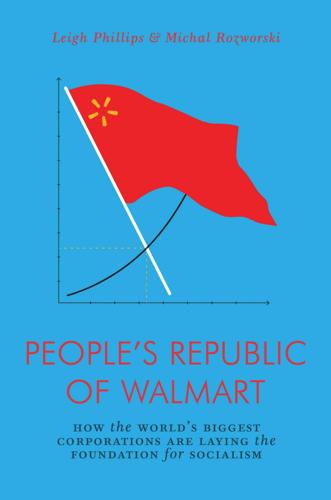
The People's Republic of Walmart: How the World's Biggest Corporations Are Laying the Foundation for Socialism
by
Leigh Phillips
and
Michal Rozworski
Published 5 Mar 2019
Up until this point, Chile’s conventional economic reporting methods involved extensive, lengthy printed documents detailing information collected on a monthly or even yearly basis. Paul Cockshott, the computer scientist whom we met earlier, who has written extensively on the possibility of post-capitalist planning aided by contemporary processing power, is a big admirer of Cybersyn: “The big advance with Stafford Beer’s experiments with Cybersyn was that it was designed to be a real-time system rather than a system which, as the Soviets had tried, was essentially a batch system in which you made decisions every five years.”
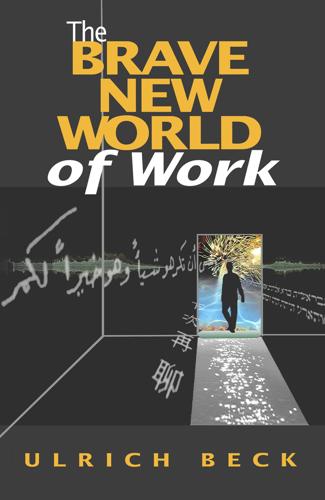
Brave New World of Work
by
Ulrich Beck
Published 15 Jan 2000
Yet unlike the employees under capitalism they own both the ‘means of production’ and the ‘tools of production’ – the former through their pension funds which are rapidly emerging in all developed countries as the only real owners, the latter because knowledge workers own their knowledge and can take it with them wherever they go. The economic challenge of the post-capitalist society will therefore be the productivity of knowledge work and knowledge worker.20 Many have objected that there is nothing new in this line of argument, since knowledge already played a central role in the industry and services era, perhaps in all epochs of work. Three answers can nevertheless be extracted from the different accounts.
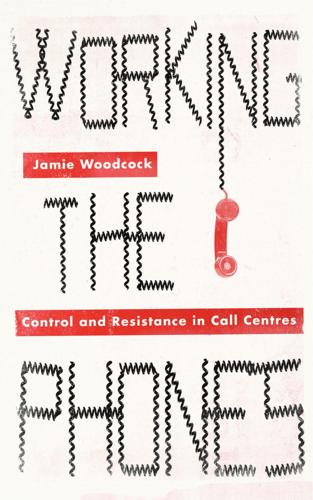
Working the Phones: Control and Resistance in Call Centres
by
Jamie Woodcock
Published 20 Nov 2016
The location of the frontier is not a given, rather it is in flux and constituted through struggle. This fluctuating struggle for control in the call centre has led to the implementation and integration of increasingly sophisticated technology. The question of this technology poses a problem for what a non- or post-capitalist call centre would be. Given that the technical organisation of the labour process is deeply intertwined with capital and managerial imperatives, how could this be conceived of in another way? As Burawoy argues, ‘in reality, machinery embraces a host of possibilities, many of which are systematically thwarted, rather than developed, by capital’.76 These possibilities are difficult to comprehend in the call centre due to the fact its current operation appears to leave little option for workers to take back control.
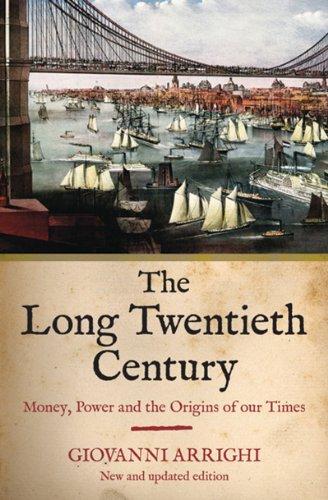
The Long Twentieth Century: Money, Power, and the Origins of Our Times
by
Giovanni Arrighi
Published 15 Mar 2010
Capitalism (the “anti-market”) 370 THE LONG TWENTIETH CENTURY would wither away with the state power that has made its fortunes in the modern era, and the underlying layer of the market economy would revert to some kind of anarchic order. Finally, to paraphrase Schumpeter, before humanity chokes (or basks) in the dungeon (or paradise) of a post-capitalist world empire or of a postcapitalist world market society, it may well burn up in the horrors (or glories) of the escalating violence that has accompanied the liquidation of the Cold War world order. In this case, capitalist history would also come to an end but by reverting permanently to the systemic chaos from which it began six hundred years ago and which has been reproduced on an everincreasing scale with each transition.
…
Dietz, E, Englis/7 Government Finance 1485-1558, New York: Barnes 8C Noble 1964. Dobb, Maurice, Studies in tbe Development of Capitalism, London: Routledge 8C Kegan Paul 1963. Dockés, Pierre, L’Espace dans la pense’e e’conomique du XVIe au XVIIIe siecle, Paris: Flammarion 1969. Drucker, Peter F., Post-Capitalist Society, New York: Harper 8C Row 1993. Dunning, John H., “International Business, the Recession and Economic Restructuring,” in N. Hood and ].-E. Vahlne, eds., Strategies in Global Competition, London: Croom Helm 1988, pp. 84-103. Eccleston, Bernard, State and Society in Post- 1Wzr ]apan, Cambridge: Polity Press 1989.
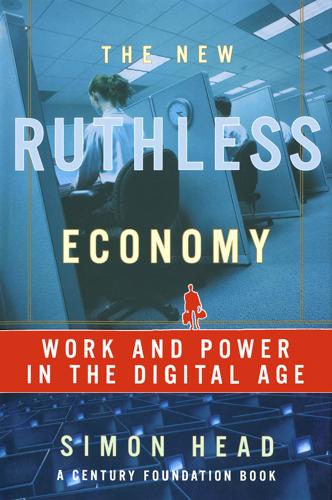
The New Ruthless Economy: Work & Power in the Digital Age
by
Simon Head
Published 14 Aug 2003
Stephen Meyer, "The Persistence of Fordism: Workers and Technology in the American Automobile Industry, 1900-1960" in On the Line: Essays in the History of Auto Work, ed. Nelson Lichtenstein and Stephen Meyer (Urbana,Ill. 1989), p. 83. 41. Ibid., p. 82. 42. Louis R. Eltscher and Edward M. Young, Curtiss-Wright: Greatness and Decline (New York, 1998), p. 103. 43. Peter F. Drucker, Post Capitalist Society (New York, 1994), p. 36. 44. Roger E. Bilstein, The American Aerospace Industry: From Workshop to Global Enterprise (New York, 1996), pp. 73-74, 77. 45. Michael J. Piore and Charles F. Sabel, The Second Industrial Divide: Possibilities for Posterity (New York, 1984). 46. Ibid., chap. 7. 47.
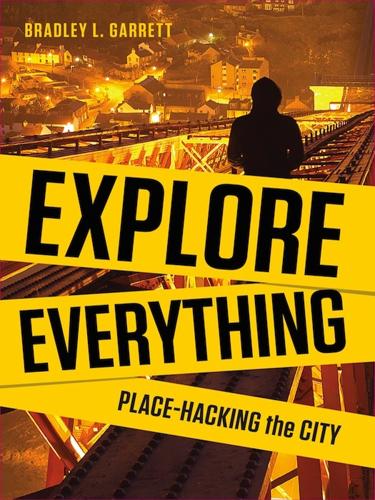
Explore Everything
by
Bradley Garrett
Published 7 Oct 2013
Exploration fosters an imagination of the past and an experience of the present that are informed by a cautious curiosity about what the future may hold as people begin to lose faith in the powers of the modern world. Perhaps this is the reason urban exploration is taking on a rapidly increasing social relevance. As people become more curious about what a post-capitalist world would look like, urban explorers can supply imaginative depictions.36 * * * * To see and hear the actual demolition of West Park recorded by urban explorer Gina Soden, go to youtube.com/watch?v=qwEgaAz6uFQ (‘The Sounds of Demolition’). Chapter 4 THE RISE OF AN INFILTRATION CREW ‘There is no one hacker ethic.
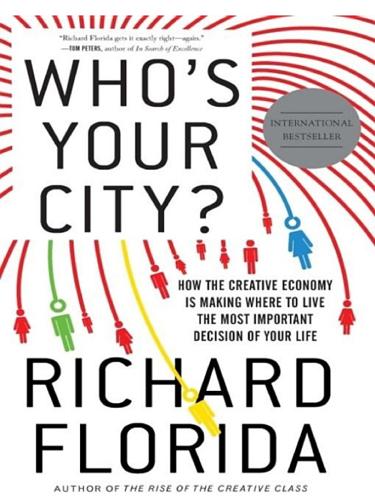
Who's Your City?: How the Creative Economy Is Making Where to Live the Most Important Decision of Your Life
by
Richard Florida
Published 28 Jun 2009
Chapter 6 1 “The World Goes to Town,” The Economist, May 3, 2007. 2 Alfonso Hernandez Marin, “Cultural Changes: From the Rural World to Urban Environment,” United Nations Chronicle, November 4, 2006. 3 Kenneth Jackson, Crabgrass Frontier, Oxford University Press, 1987; Robert Bruegmann, Sprawl: A Compact History, University of Chicago Press, 2005. 4 Joel Garreau, Edge City, Anchor, 1992. 5 Alan Ehrenhalt, “Trading Places: The Demographic Inversion of the American City,” The New Republic, August 13, 2008. 6 David Brooks, Bobos in Paradise, Simon & Schuster, 2001; Brooks, On Paradise Drive, Simon & Schuster, 2004. 7 Edward Glaeser and Christopher Berry, The Divergence of Human Capital Levels Across Cities, Harvard Institute of Economic Research, August 2005. 8 Richard Florida, “Where the Brains Are,” Atlantic Monthly, October 2006, p. 34. 9 Joseph Gyourko, Christopher Mayer, and Todd Sinai, “Superstar Cities,” National Bureau of Economic Research, Working Paper no. 12355, July 2006. Chapter 7 1 Dan Pink, Free Agent Nation, Warner Books, 2001. 2 Peter Drucker, Post-Capitalist Society, Harper Business, 1993; Drucker, “Beyond the Information Revolution,” Atlantic Monthly, October 1999, pp. 47-57; Drucker, “The Next Society,” The Economist, November 1, 2001, pp. 1-20. Fritz Machlup is often credited with the term “knowledge worker” from his 1962 book The Production and Distribution of Knowledge in the United States, Princeton University Press, 1962. 3 See Richard Florida, The Rise of the Creative Class, Basic Books, 2002.
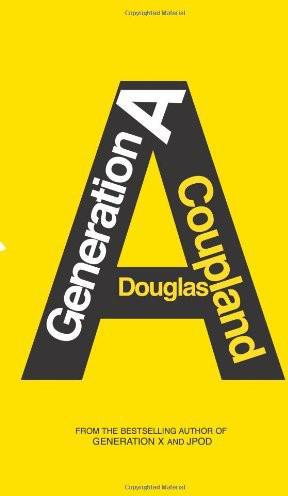
Generation A
by
Douglas Coupland
Published 2 Jan 2009
. . . a black girl from Detroit experiences Rome and history for the first time while seated in the back seat of a shitty yellow taxi with lots of lens flare and bad B-unit camera photography. “I am a poor black American girl! I have been transformed on the quickie ride from Da Vinci Airport! If only the world could see Rome for three-point-five minutes like this, we’d all be living inside some record producer’s wet dream of post-capitalist freedom!” My father wants to believe that the world is easy to understand. Let him and my mother see me on the news. For the time being, I was sitting on a blue plastic stool inside the plastic room, with two policemen watching me while a scientist orchestrated the arrival of several more fuckpig monster labs on wheels.
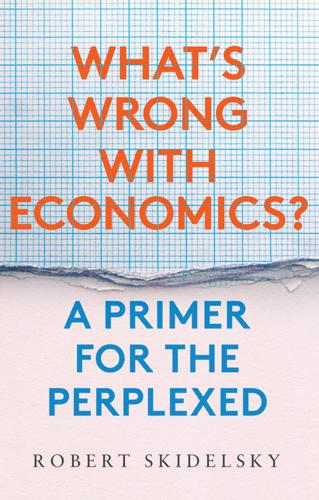
What's Wrong With Economics: A Primer for the Perplexed
by
Robert Skidelsky
Published 3 Mar 2020
Keynes agreed with the Mills. Capitalism’s psychological mainspring, love of money, is ethically bad, but it is the means to the good. By creating abundance it will enable us ‘to live wisely and agreeably and well’.18 Capitalism was a passing phase, a view Keynes shared with Marx. Most economists cannot envisage a post-capitalist era, because they see scarcity as a permanent condition: the Robbins definition sets no limit to human wants. Scarcity continues to demand arithmetical – not moral – solutions. Further, capitalism has showed itself superior to communism as a growth engine, because central planning couldn’t do the necessary social arithmetic – an argument we owe to Hayek (1937).
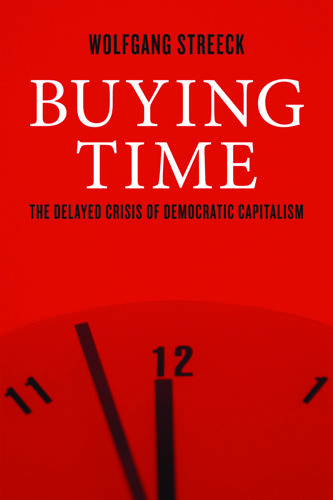
Buying Time: The Delayed Crisis of Democratic Capitalism
by
Wolfgang Streeck
Published 1 Jan 2013
In his view, capitalism had become thoroughly state-planned in the course of its development, ‘so that nothing essential was left to the laws of the market or other “economic laws” ’.21 Even after the war and the end of fascism and the war economy, Pollock found no reason to change his judgement: the development of large corporations and ever more sophisticated instruments of state planning meant that the age of laissez-faire was well and truly over, and that advanced capitalism had mutated into a politically regulated and essentially crisis-free economic machinery. Under fascism and state socialism as well as the New Deal, the three post-capitalist economic systems, the primacy of politics had succeeded the old primacy of economics and had thereby overcome the crisis tendencies inherent in the original, chaotically disorganized, competitive form of capitalism. For Adorno and Horkheimer, according to Helmut Dubiel in his introduction to a collection of Pollock’s essays, ‘Pollock’s theory of state capitalism [was] the detailed account of a social order in which state bureaucracies have gained such a hold over the economic process that one may speak of a primacy of politics over economics under non-socialist conditions.’
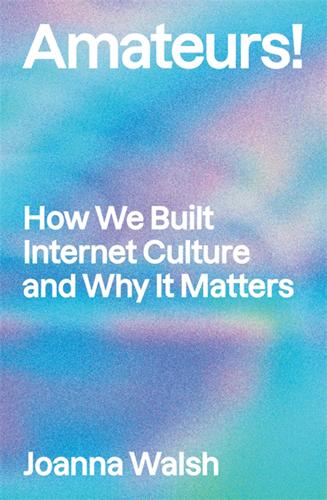
Amateurs!: How We Built Internet Culture and Why It Matters
by
Joanna Walsh
Published 22 Sep 2025
Is ‘the style of too-late capitalism’, as Anna Kornbluh wrote, ‘immediacy’, or is it better expressed as Nicholas Carr’s diffused and deferred ‘time spent scrolling’ that ‘crowds out the time we spend reading books, as the time we spend exchanging bite-sized text messages crowds out the time we spend composing sentences and paragraphs, as the time we spend hopping across links crowds out,’ a somewhat fanciful utopia of ‘quiet reflection and contemplation’.13 This slippage into utopian/dystopian language is typical of attempts to describe internet spacetime. It’s impossible to talk about time and digital technology right now without mentioning accelerationism. Derived from Marx, accelerationism advises speeding up capitalism to smash through dystopia to a post-capitalist utopia – or sometimes, just to smash. ‘Accelerationism’ was coined – critically – by the critical theorist, Benjamin Noys. It has left-wing iterations but is best known for alt-right fantasies of a technological singularity drawn from the writings of Nick Land, who accelerated Noys’s term into a movement.
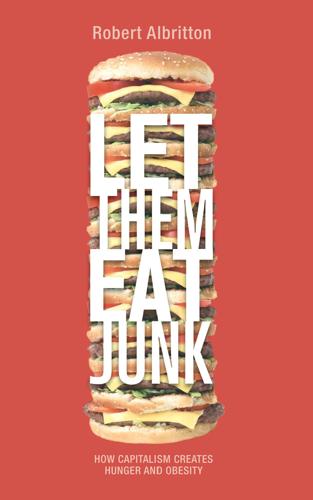
Let them eat junk: how capitalism creates hunger and obesity
by
Robert Albritton
Published 31 Mar 2009
I shall argue that not only will capitalism always resist the sorts of reforms that are needed to build a more rational food system, but also while a reformed capitalism may be a worthwhile short-term goal, in the long-run we need changes that go far beyond anything manageable purely through competitive markets and privately owned units of capital. I am not suggesting doing away with markets and corporations, but rather with making them democratically accountable in ways that some might consider post-capitalist. Further, given that food is a basic necessity and that its production brings us into close contact with the earth, failures in this sector may impact negatively on both human health and environmental health. If it can be shown that failures of capitalism in arenas so 20 L E T T H E M E AT J U N K vital to human well-being have necessitated frequent and sustained state intervention, and that even with this intervention significant failures remain, then the very rationality of capitalism must be doubted.
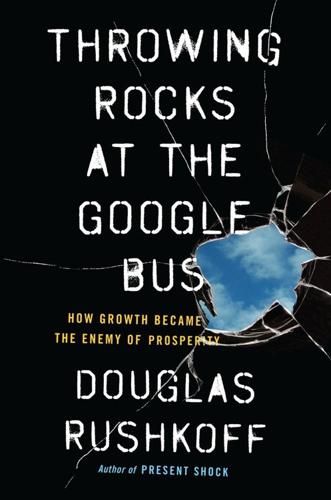
Throwing Rocks at the Google Bus: How Growth Became the Enemy of Prosperity
by
Douglas Rushkoff
Published 1 Mar 2016
“Vandana Shiva on the Problem with Genetically Modified Seeds,” Moyers and Co., PBS, July 13, 2012. 80. opensourceecology.org/about-overview/. 81. “Machines: Global Village Construction Set,” opensourceecology.org/gvcs/. 82. opensourceecology.org/about-overview/. 83. David Bollier, “The FLOK Society Vision of a Post-Capitalist Economy,” bollier.org, March 2, 2014. 84. Bethany Horne, “How the FLOK Society Brings a Commons Approach to Ecuador’s Economy,” shareable.net, October 22, 2013. 85. Glyn Moody, “The FLOK Society Project: Making the Good Life Possible Through Good Knowledge,” techdirt.com, June 11, 2014. 86.

Digital Bank: Strategies for Launching or Becoming a Digital Bank
by
Chris Skinner
Published 27 Aug 2013
This is obvious when the oppressor is a person – Colonel Gaddafi, President Bashar al-Assad, President Mubarak, President Ben Ali, Saddam Hussein – all ably illustrated by the Arab Spring. But what if the oppressor is a system? The system is the economic system of capitalism. Capitalism is oppressing the people of Europe and America in the post-capitalistic meltdown and the mobile internet is allowing the oppressed to break this oppression. That is why Time Magazine named their 2011 Person of the Year as The Protestor, rather than an individual. An unusual move but, during 2011, there were so many examples of individual action that Protestors could not be ignored, and these were the combined forces of many individuals ignited by one, such as Mohamed Bouazizi.
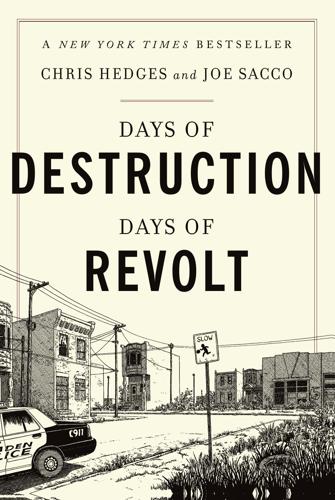
Days of Destruction, Days of Revolt
by
Chris Hedges
and
Joe Sacco
Published 7 Apr 2014
—Boston Globe “Days of Destruction, Days of Revolt is a gripping and thoroughly researched polemic.” —Grantland “[A] growling indictment of corporate America.” —Financial Times “ . . . a unique hybrid of investigative journalism, graphic novel and polemic.” —Denver Post “ . . . a heartfelt, harrowing picture of post-capitalist America.” —Guardian (UK) “The book is a primer for every American who is overwhelmed by the uncertainty of the stock market, who wonders where America’s muscle went, and how much heavy lifting our kids will face.” —Seattle Times “The tales therein—both the intimate personal ones and the big sociopolitical ones—are as unsettling as they are impossible to put down.”
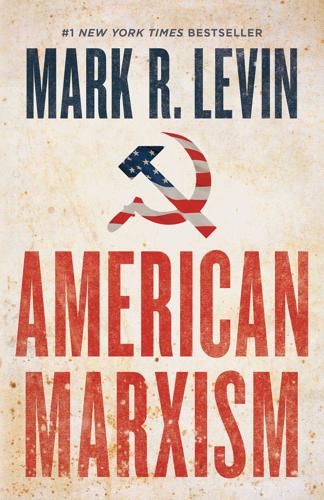
American Marxism
by
Mark R. Levin
Published 12 Jul 2021
The prognosis, usually characterized by a strong utopian dimension, seeks solutions and hypothesizes new social patterns. Beyond practical goals, this process opens new spaces and prospects for action. Strategies associated with the prognosis tend to be multiple. In terms of approaches, these can be alternatives building, opposition research, and in relation to capitalism, they can be ‘anti-capitalist,’ post-capitalist,’ and ‘despite capitalism.’ ”10 And there you have it. For many of the “environmental” intellectuals behind this amorphous yet widespread movement, the goal is to spawn myriad sub-movements aimed at taking down the capitalist system. As I explained in 2015 in Plunder and Deceit, among other things, “[t]he degrowthers seek to eliminate carbon sources of energy and redistribute wealth according to terms they consider equitable.
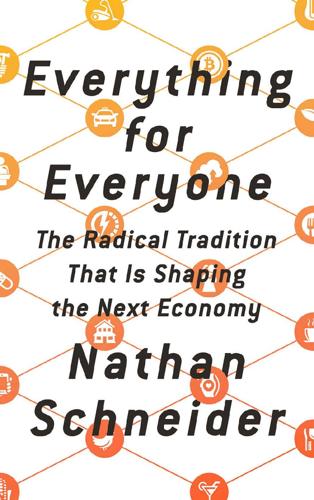
Everything for Everyone: The Radical Tradition That Is Shaping the Next Economy
by
Nathan Schneider
Published 10 Sep 2018
Juris, Networking Futures: The Movements Against Corporate Globalization (Duke University Press, 2008). 13. Enric Duran, Abolim la Banca (Ara Llibres, 2009). 14. For a more recent overview of the CIC, as well as more details on its organizational structure, see George Dafermos, The Catalan Integral Cooperative: An Organizational Study of a Post-Capitalist Cooperative (P2P Foundation and Robin Hood Coop, 2017). 15. The mysterious first chapter of FairCoin’s life remains archived in a popular cryptocurrency forum: bitcointalk.org/index.php?topic=487212.0. Chapter 5: Slow Computing 1. Christopher M. Kelty, Two Bits: The Cultural Significance of Free Software (Duke University Press, 2008). 2.
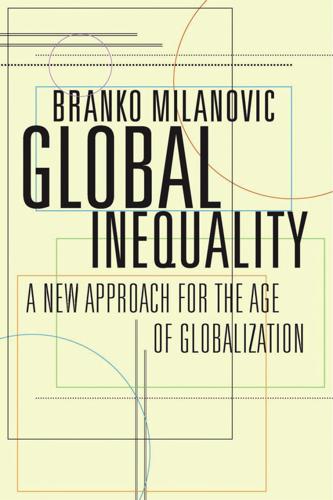
Global Inequality: A New Approach for the Age of Globalization
by
Branko Milanovic
Published 10 Apr 2016
It is also remarkable that the writers of this period were unable to define the “new society” except negatively, that is, by what it no longer was. Hence, the proliferation of “post” prefixes in Bell’s Coming of Post-Industrial Society (1973): a cursory review reveals “post-industrial,” “post-bourgeois,” “post-Marxist,” “post-capitalist,” and “post-scarcity.” 3. Limits to Growth (1972) was also the first report of the Club of Rome. The second report, Mankind at the Turning Point (1974), by Mihailo Mesarovic and Eduard Pestel, was even more quantitative and ostensibly scientific. 4. Sicco Mansholt, then the president of the European Commission, was a strong proponent of zero growth.
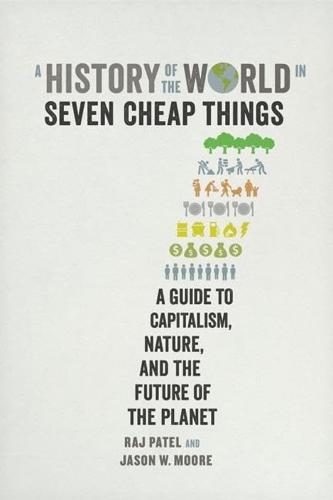
A History of the World in Seven Cheap Things: A Guide to Capitalism, Nature, and the Future of the Planet
by
Raj Patel
and
Jason W. Moore
Published 16 Oct 2017
Translated by Richard McDougall. New York: Pantheon. Barker, Joanne. 2006. “Gender, Sovereignty, and the Discourse of Rights in Native Women’s Activism.” Meridians: Feminism, Race, Transnationalism 7, no. 1: 127–61. Barkin, David, and Blanca Lemus. 2016. “Third World Alternatives for Building Post-capitalist Worlds.” Review of Radical Political Economics 48, no. 4: 569–76. Barnhill, David Landis. 2005. “Buddhism.” In The Encyclopedia of Religion and Nature, edited by Bron Raymond Taylor, 236–39. London: Thoemmes Continuum. Barnosky, Anthony D., Elizabeth A. Hadly, Jordi Bascompte, Eric L. Berlow, James H.
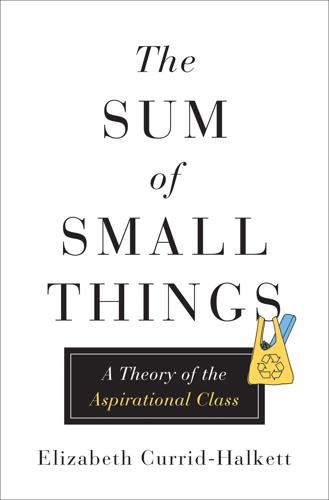
The Sum of Small Things: A Theory of the Aspirational Class
by
Elizabeth Currid-Halkett
Published 14 May 2017
Doherty, D., & Etzioni, A. (2003). Voluntary simplicity: Responding to consumer culture. Lanham, MD: Roman & Littlefield. Douglas, M., & Isherwood, B. C. (1996). The world of goods: Towards an anthropology of consumption: With a new introduction ([Rev.] ed.). London; New York: Routledge. Drucker, P. F. (1993). Post-capitalist society. New York: Routledge. Druckerman, P. (2012). Bringing up bébé: One American mother discovers the wisdom of French parenting. New York: Penguin Press. Easterlin, R. (2007). The escalation of material goods: Fingering the wrong culprit. Psychological Inquiry 18(1): 31–33. Easterlin, R., Angelescu-McVey, L., Switek, M., Sawangfa, O., & Zweig, J.
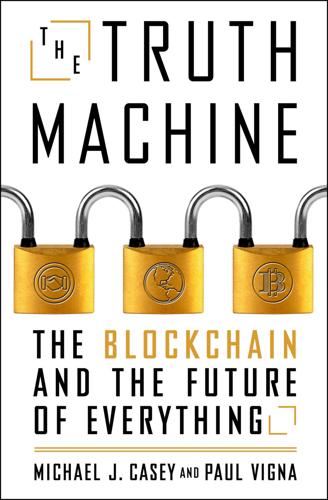
The Truth Machine: The Blockchain and the Future of Everything
by
Paul Vigna
and
Michael J. Casey
Published 27 Feb 2018
These kinds of tensions are fueling terrorism, violence, insecurity, and a real risk that, one day, this toxic mix of protectionism, nationalism, and xenophobia will put us on a path to serious armed conflict. To be cynical about the prospect of change, though, is to give up. So, it’s in that spirit that we encourage people to reflect on these alternative visions for a post-capitalist society, to imagine these technologies as the platform for a future that is neither mired in the failed, collectivist ideas of socialism nor trapped by the centralized, exclusionary political economy of state-protected, big-business monopolies. These ideas offer a way out, but a way that requires a change in thinking about how value is created.
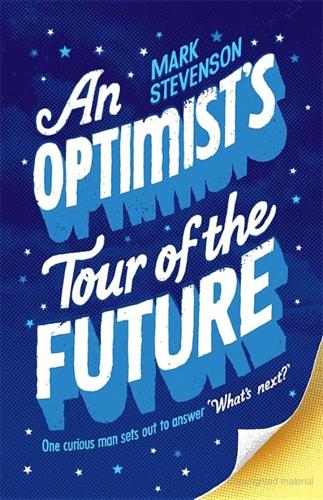
An Optimist's Tour of the Future
by
Mark Stevenson
Published 4 Dec 2010
What we’re seeing are very small, very agile companies that are capable of getting off the ground in a way that was previously unthinkable. They don’t have an overbearing investor breathing down their backs. They can fund themselves through friends and family.’ I’m reminded of how things are likely to get cheaper as information technology infiltrates manufacturing – the post-capitalist world I’d discussed with Eric Drexler. John is speaking with a heartfelt urgency now. ‘The old-age companies don’t know why they have to run faster in order to lose more slowly,’ he says, laughing. ‘All the practices of those companies are exactly the practices that keep you from being able to engage in the world of fast-paced innovation.
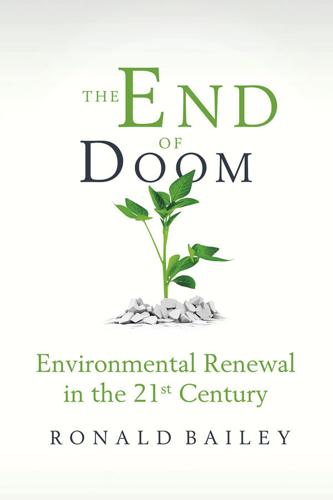
The End of Doom: Environmental Renewal in the Twenty-First Century
by
Ronald Bailey
Published 20 Jul 2015
The solution to future climate change is the same as the remedy for other environmental problems—the application of human ingenuity and technology. Progressives want to use the “climate crisis” as a stalking horse to scare the rest of us into adopting their vast schemes to transform the world’s economy into some kind of post-capitalist utopia. Consequently, progressives strongly support United Nations negotiations aiming at a global treaty that would impose central planning on the climate. So far, those negotiations have utterly failed. It is unfortunately the case that government meddling on a global scale has massively distorted energy markets through pervasive subsidies, mandates, and price controls.
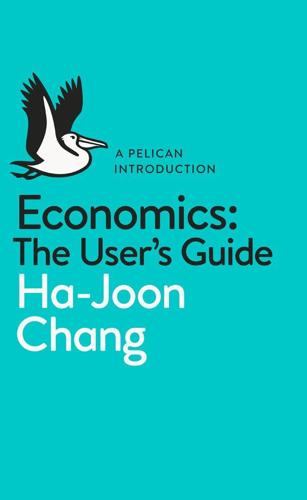
A Pelican Introduction Economics: A User's Guide
by
Ha-Joon Chang
Published 26 May 2014
The most important anti-capitalist visionary was, however, Karl Marx (1818–83), the German economist and revolutionary, who spent most of his time exiled in England – his grave is in Highgate Cemetery in London. Marx labelled Owen and others like him as ‘utopian socialists’ for believing that a post-capitalist society can be based on idyllic communal living. Calling his own approach ‘scientific socialism’, he argued that the new society should build on, rather than reject, the achievements of capitalism. A socialist society should abolish private ownership in the means of production but it should preserve the large production units created by capitalism so that it can take full advantage of their high productivities.
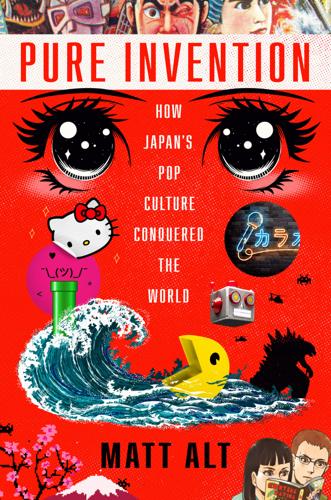
Pure Invention: How Japan's Pop Culture Conquered the World
by
Matt Alt
Published 14 Apr 2020
We cocoon ourselves indoors: Netflix-nesting, never bored, often lonely; unnamed protagonists in a magical-realist novel in progress. Yet we know we’d never go back; our futures depend on us mastering the technologies that connect, soothe, and bind us. If there is any one lesson to learn from the heroes of the stories that unfolded in these pages, it is that the way out of the strange post-capitalist techno-political hellscape we find ourselves in is to create. Take the COVID-19 epidemic, which profoundly disrupted public life beginning in early 2020. As orders to “shelter in place” and “socially distance” turned people around the world into involuntary hikikomori, many turned to the old tools of the otaku to soothe their loneliness: games, videos, and playthings.
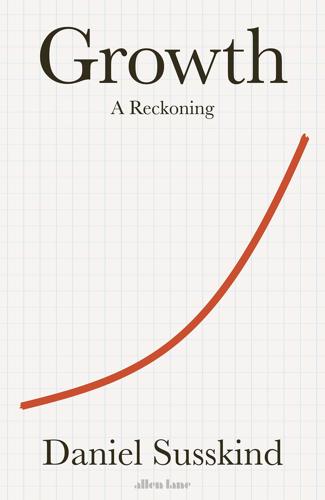
Growth: A Reckoning
by
Daniel Susskind
Published 16 Apr 2024
‘For some people, growth and capitalism go together,’ writes the economist Tim Jackson. ‘It’s a necessary condition for a capitalistic economy. And for this reason, the idea of doing without growth is seen as tantamount to doing away with capitalism.’20 They call for replacing capitalism with something else altogether – either socialism or some other ‘post-capitalist’ institutional setup. Yet those who conflate the harms of growth and capitalism in this way are needlessly hampering themselves. To begin with, they are ignoring the potential of the only known mechanism – the market – that could actually help them achieve their ambitions for society. (As we saw in Chapter 4, the market has enabled astounding progress on many measures.)
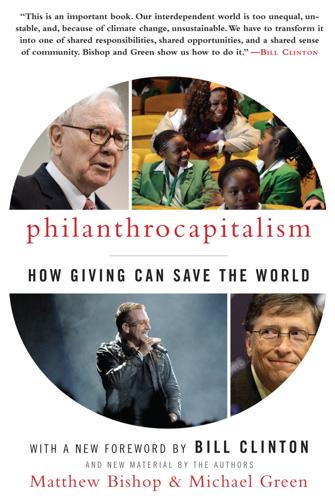
Philanthrocapitalism
by
Matthew Bishop
,
Michael Green
and
Bill Clinton
Published 29 Sep 2008
THE HIGH PRIEST OF PHILANTHROCAPITALISM Peter Drucker, who died in 2005 at the age of ninety-five, is generally acknowledged to be one of the greatest ever writers and thinkers about management; indeed, he is often credited with inventing the very discipline of management. He also deserves to be remembered as the original guru of philanthrocapitalism. Drucker wrote thirty-nine books, among them The Concept of the Corporation, The Practice of Management, The Future of Industrial Man, and Post-Capitalist Society. An advocate of “scientific management” and “management by objective,” he made famous the term “knowledge worker,” reflecting his fascination with the growing importance in the modern “knowledge economy” of people who work with their minds, rather than their hands. In his later years, the Austrian-born Drucker became increasingly focused on the nonprofit sector, which he saw as having a crucial role in building community and gluing society together, yet needing better management.

Radical Technologies: The Design of Everyday Life
by
Adam Greenfield
Published 29 May 2017
Adrian Bowyer explicitly devised his self-replicating digital fabricator to undermine the logic of material scarcity on which capitalist enterprise depends, and this argument has been picked up and extended in recent years by authors like Rifkin, Mason, Srnicek and Williams, in their reflections on the shape of an emergent post-capitalist order. From the shadowy Satoshi Nakamoto to Nick Szabo to Vitalik Buterin, the inventors of the blockchain overtly intended to erode statism and central administration. Virtually everywhere, decision algorithms are touted to us on the promise that they will permanently displace human subjectivity and bias.
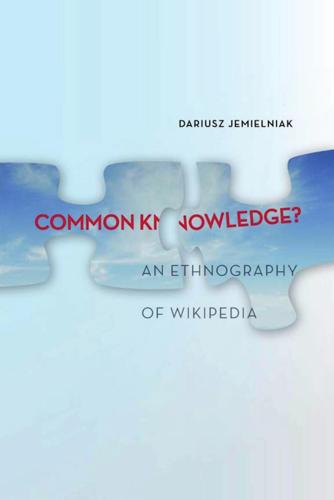
Common Knowledge?: An Ethnography of Wikipedia
by
Dariusz Jemielniak
Published 13 May 2014
Dondio, P., Barrett, S., Weber, S., & Seigneur, J. (2006). Extracting trust from domain analysis: A case study on the Wikipedia project. Autonomic and Trusted Computing, 4158, 362–373. Dreyfus, H. L., & Rabinow, P. (1983). Michel Foucault: Beyond structuralism and hermeneutics (2nd ed.). Chicago: University of Chicago Press. Drucker, P. F. (1993). Post-capitalist society (1st ed.). New York: Harper Business. Du Gay, P. (2007). Organizing identity: Persons and organizations “after theory.” Los Angeles: Sage. Du Gay, P. (Ed.). (2005). The values of bureaucracy. Oxford, England: Oxford University Press. Eijkman, H. (2010). Academics and Wikipedia: Reframing Web 2.0+ as a disruptor of traditional academic power-knowledge arrangements.
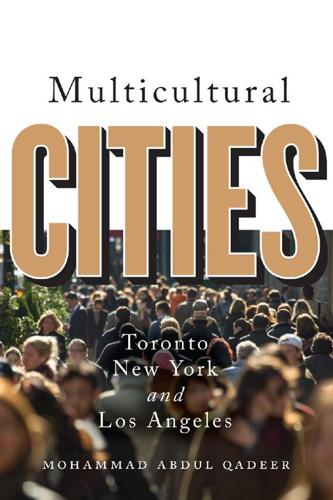
Multicultural Cities: Toronto, New York, and Los Angeles
by
Mohammed Abdul Qadeer
Published 10 Mar 2016
Apart from the rights associated with civilization – the “right to work, to training and education, to health, housing leisure, to life” – Lefebvre envisages a “distinctly political space within which use-value rules and people are in the centre, participating and liberated from the segregated and fragmented social life.”56 Mark Purcell helps us understand the layered meanings of Lefebvre’s conception of the right to the city, which is based on the idea of use-value as the entitlement to property in a city, leading to (1) cultivation of a web of cooperative social relations among urbanites and (2) forging a new contract of citizenship involving thoroughgoing political awakening and instilling a new consciousness.57 The right to the city is a manifesto of an urban revolution that is both post-capitalist and post-Marxian in conception. David Harvey observes that the right to the city is not merely a right of access to what the existing system provides, but the right “to make the city different, to shape it more in accord with our heart’s desire, and to remake ourselves thereby in a different image.”58 Despite these transformative goals, the right to the city has mostly been interpreted as a call to political engagement, equitable services, and the accommodation of diversity.
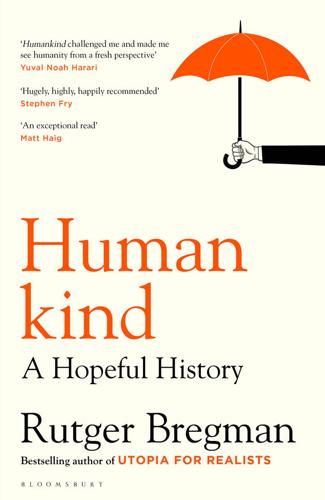
Humankind: A Hopeful History
by
Rutger Bregman
Published 1 Jun 2020
All too often, the sharing economy turns out to be more like a shearing economy – we all get fleeced. For the moment, we’re still locked in a fierce and undecided contest. On one side are the people who believe the whole world is destined to become one big commune. These are the optimists – also known as post-capitalists, presumably because communism is still a dirty word.40 On the other side are the pessimists who foresee continued raids on the commons by Silicon Valley and Wall Street and ongoing growth in inequality.41 Which side will turn out to be right? Nobody really knows. But my money’s on Elinor Ostrom, who was neither an optimist nor a pessimist, but a possibilist.
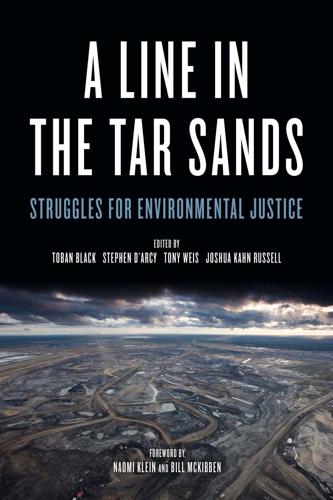
A Line in the Tar Sands: Struggles for Environmental Justice
by
Tony Weis
and
Joshua Kahn Russell
Published 14 Oct 2014
Alternate decentralized energy development, on the one hand, and democratically controlled public power provision, on the other, have been wholly lacking in coordinated state support. Divestment from fossil fuels is a necessary condition for stabilizing greenhouse gas emissions, and thus a core demand of the climate justice movement. It is politically inconceivable to isolate a transition out of fossil fuels from a project of democratizing the state and a vision of a post-capitalist society. The ecological crisis is deeply intertwined with the modes of energy usage internal to the production and consumption patterns of contemporary capitalism—endless accumulation and overconsumption alongside hideous inequalities, the environment served up as a dumping ground for industrial waste, the ceaseless commodification of agriculture spaces and wetlands.

Ayn Rand Cult
by
Jeff Walker
Published 30 Dec 1998
The Avenging World. A comic book. San Jose: Bruce Hershenson, 1973. Donway, Walter. Interviewed by Karen Reedstrom. Full Context (May 1992). Dreiser, Theodore. The Titan. New York: New American Library, 1965 [1914]. ———. The Financier. New York: New American Library, 1967 [1912]. Drucker, Peter F. Post-Capitalist Society. New York: HarperCollins, 1993. Dwyer, William. The Argument Against ‘An Objective Standard of Value’. Personalist 55 (Spring 1974): 165–181. Dyson, Freeman. Tool-Driven Scientific Revolutions. Skeptical Inquirer, vol. 18, no. 2 (Winter 1994): p. 169. Economist, The. Philosophy Comes Down from the Clouds.
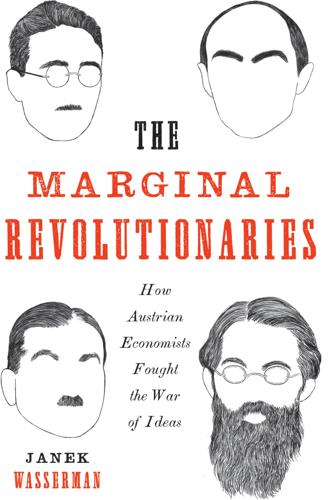
The Marginal Revolutionaries: How Austrian Economists Fought the War of Ideas
by
Janek Wasserman
Published 23 Sep 2019
Right Moves: The Conservative Think Tank in American Political Culture since 1945. Chapel Hill: University of North Carolina Press, 2016. Stedman Jones, Daniel. Masters of the Universe: Hayek, Friedman, and the Birth of Neoliberal Politics. Princeton, NJ: Princeton University Press, 2012. Steele, David Ramsay. From Marx to Mises: Post-Capitalist Society and the Challenge of Economic Calculation. La Salle, IL: Open Court, 1992. Steil, Benn. The Battle of Bretton Woods: John Maynard Keynes, Harry Dexter White, and the Making of a New World Order. Princeton, NJ: Princeton University Press, 2013. Stenographische Protokolle über die vom 8.
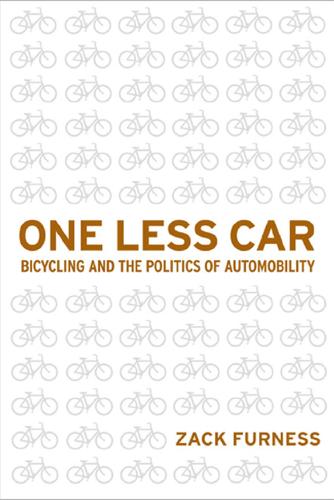
One Less Car: Bicycling and the Politics of Automobility
by
Zack Furness
and
Zachary Mooradian Furness
Published 28 Mar 2010
The provos’ anarcho-environmentalist successors, the Kabouters (meaning “gnomes” or “elves”), elaborated this aspect of the provo agenda, surprisingly winning five council seats in amsterdam and twelve others throughout the netherlands in 1970.59 like their anarchist predecessors, the Kabouters were not interested in promoting athleticism or a specific cycling identity, but desirous of creating a political context where the bicycle could (ideally) become a practical, mundane, and universal feature of everyday urban life—a technological embodiment of environmentalism.60 The effort to integrate bicycling into the fabric of radical politics and an ecological vision of post-capitalist urbanism resonates with a wider anti-automobile sentiment blossoming throughout Europe in the late 1960s and early 1970s. in particular, French intellectuals like alain Touraine and Henri lefebvre forged Marxist critiques of automobility, pointing to the car’s central function in modern capitalism and its multiple roles as a pre-eminent consumer commodity, a bourgeois artifact, and a symbol of the subjugation of “lived space” for the sterility of “geometric space.”61 David inglis offers a detailed account of the French theorists’ critique of automobility and their collective disdain for car culture: “The French in general, and the intelligentsia in particular, were highly reflexively conscious of the roles played by the automobiles in society in part because, unlike in the USa, the rise of the car was not taken for granted or seen necessarily to be a harbinger of the benefits of scientific and technological modernity.”62 Cars may not have garnered the same widespread cultural support in France, but, contrary to inglis’s claim, technological modernity was precisely the motivation for le Corbusier’s auto-centric vision of paris in the first half of the twentieth century—a point duly noted by geographer David pinder: “to be truly modern, so it was often claimed, paris had to embrace the motor car.”63 pinder recalls that the number of cars in the paris region escalated dramatically in the wake of le Corbusier’s influence, from roughly half a million in 1939, to more than one million by 1960, to more than two million by 1965.64 parisian automobility correlated with, and undoubtedly perpetuated, the demolition and reconstruction of one-fourth of the city between 1954 and 1974, whereby more than half a million parisians—mainly working-class and north african immigrants—were thrust to the city’s outer realms while the professional and upper classes increased their urban presence by more than 50 percent.65 andré Gorz’s 1973 critique of the “social ideology of the motorcar” makes a great deal of sense at a time when cars were the technological tools with which the newly transplanted parisian bourgeoisie asserted their spatial and cultural authority: Mass motoring effects an absolute triumph of bourgeois ideology on the level of everyday life. it gives and supports in everyone the illusion that each individual can seek his or her own benefit at the expense of everyone else.
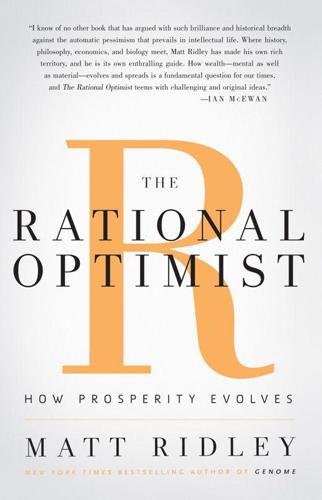
The Rational Optimist: How Prosperity Evolves
by
Matt Ridley
Published 17 May 2010
The greatest lead-user innovation of all was probably the World Wide Web, devised by Sir Tim Berners-Lee in 1991 to solve the problem of sharing particle physics data between computers. Incidentally, nobody has yet suggested that research in software and surfboards must be government-funded because innovation in them would not happen without subsidy. In other words, we may soon be living in a post-capitalist, post-corporate world, where individuals are free to come together in temporary aggregations to share, collaborate and innovate, where websites enable people to find employers, employees, customers and clients anywhere in the world. This is also, as Geoffrey Miller reminds us, a world that will put ‘infinite production ability in the service of infinite human lust, gluttony, sloth, wrath, greed, envy and pride’.
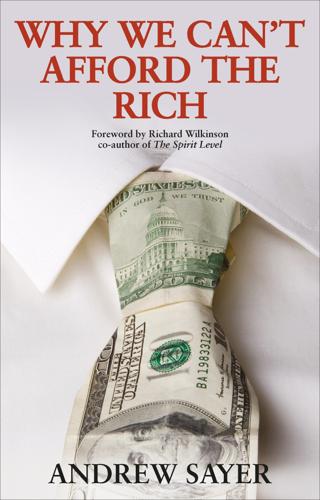
Why We Can't Afford the Rich
by
Andrew Sayer
Published 6 Nov 2014
See also Oxfam (2014) ‘Working for the few: political capture and economic inequality’, 178 Oxfam Briefing Paper, 20 January. 7 There are other possible reasons for this decline in profitability – for example, the labour- and capital-saving character of the emerging information technology and the tendency for the benefits of technological innovations to be restricted by intellectual property rights and the pursuit of economic rent. See Shutt, H. (2010) Beyond the profits system: Possibilities for a post-capitalist era, London: Zed Books. 8 This was matched by shifts in unearned income as income from interest rose from 1.4% of total US income in 1950 to 6.5% in 1979 and to a peak of 10.9% in 1986, before falling to 7.2% in 2005. Dew-Becker, I. and Gordon, R.J. (2005) ‘Where did the productivity growth go?’
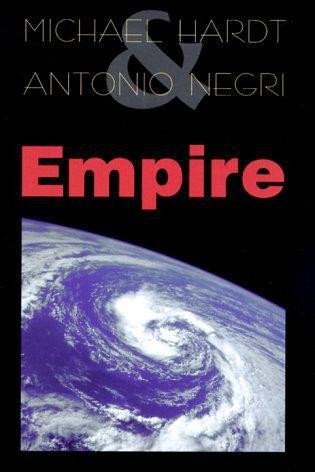
Empire
by
Michael Hardt
and
Antonio Negri
Published 9 Mar 2000
Peter Drucker understands the passage toward immaterial production in extreme terms. ‘‘The basic economic resource—‘the means ofproduc- tion,’ to use the economist’s term—is no longer capital, nor natural 462 N O T E S T O P A G E S 2 9 1 – 2 9 9 resources (the economist’s ‘land’), nor ‘labor.’ It is and will be knowledge. ’ Peter Drucker, Post-capitalist Society (New York: Harper, 1993), p. 8. What Drucker does not understand is that knowledge is not given but produced and that its production involves new kinds ofmeans ofproduc- tion and labor. 19. Robert Reich, The Work of Nations: Preparing Ourselves for 21st-Century Capitalism (New York: Knopf, 1991), p. 177.

Homeland: The War on Terror in American Life
by
Richard Beck
Published 2 Sep 2024
BACK TO NOTE REFERENCE 57 Public Trust in Government: 1958–2024, Pew Research Center, June 24, 2024, www.pewresearch.org/politics/2024/06/24/public-trust-in-government-1958-2024/. BACK TO NOTE REFERENCE 58 Jonathan Crary, Scorched Earth: Beyond the Digital Age to a Post-Capitalist World (London: Verso, 2022), 25. BACK TO NOTE REFERENCE 59 Chapter 12: They Do This All the Time Dick Cheney, In My Time: A Personal and Political Memoir, with Liz Cheney (New York: Threshold Editions, 2011), 249–51. BACK TO NOTE REFERENCE 1 “WHITTINGTON/CHENEY,” CNN, July 21, 2016, YouTube, www.youtube.com/watch?
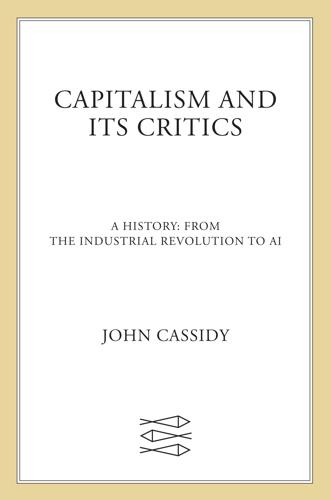
Capitalism and Its Critics: A History: From the Industrial Revolution to AI
by
John Cassidy
Published 12 May 2025
“When it comes to human well-being, counting GDP is irrelevant,” Hickel said. The real issue was that “capitalism is highly inefficient when it comes to meeting human needs; it produces so much, and yet leaves 60% of the human population without access to even the most basic goods.”39 What was ultimately needed, he insisted in Less Is More, was an “alternative, post-capitalist economy.”40 * * * The backlash against globalization that Dani Rodrik predicted during the 1990s didn’t end with Brexit and the 2016 election of Donald Trump; neither did the rise of right-wing populism and the attacks on liberal democracy associated with it. “Half of democratic governments around the world are in decline, undermined by problems ranging from restrictions on freedom of expression to distrust in the legitimacy of elections,” the Stockholm-based International Institute for Democracy and Electoral Assistance said on the occasion of releasing its annual review for 2022.41 In the 2024 elections for the European Parliament, populist right-wing parties made big gains in many countries.

The Cold War: A World History
by
Odd Arne Westad
Published 4 Sep 2017
In Le Figaro, the French anti-Communist intellectual Raymond Aron observed, with much portent, that “the conquest of the former Chinese Empire by a revolutionary party professing an ideology of Western origin, which has now become the official religion of a Eurasian empire, constitutes a historic event, paradoxical at first sight and still unpredictable in its consequences.… The example of China, after that of Russia, shows that Marxism, created by Marx for post-capitalist societies, has a better chance of success in pre-capitalist societies.”11 In the United States the overall reaction was more one of profound shock. Since the early part of the twentieth century, the few Americans who were preoccupied with such matters had seen their country as a benevolent guide for China, helping and assisting the country as it entered the world stage.
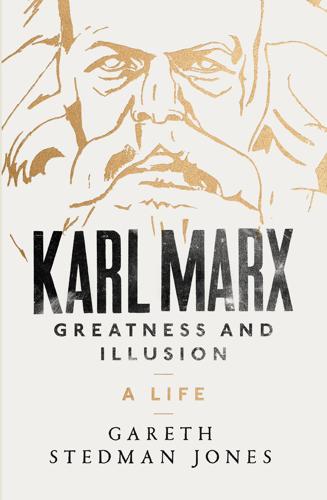
Karl Marx: Greatness and Illusion
by
Gareth Stedman Jones
Published 24 Aug 2016
Yet since 1838 he had moved to the anti-Romanticism of Hegel, and had accepted the satire of Heine’s Romantische Schule, and the anti-Romantic polemic of Ruge’s Hallische Jahrbücher. Karl’s writings from the early 1840s through to the publication of Capital in 1867 were resolutely modernist and anti-Romantic in tone. They were of a piece with his critique of political economy, and his identification of socialism with a post-capitalist future, which would be heralded by a revolt of the new industrial working class. But in the 1868 letter he modified his judgement: ‘The first reaction to the French Revolution and the Enlightenment bound up with it was naturally to regard everything as medieval, Romantic, and even people like Grimm are not free from this.’
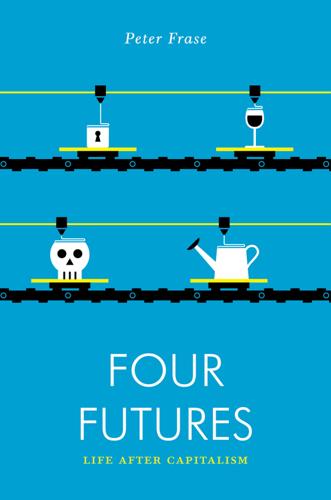
Four Futures: Life After Capitalism
by
Peter Frase
Published 10 Mar 2015
In the context we are describing in this chapter, universal basic income plays a quite different function than wages in capitalism. And it will work to ration and plan out consumption through the mechanism of the market. This might seem an odd thing to say, in a chapter titled “Socialism.” And there are some socialists who see the market as inherently incompatible with a desirable post-capitalism. For them, the market is a fundamental component of what’s wrong with capitalism, and is a source of atomization and alienation. Because markets use money and commodities to mediate our relations with one another, this line of argument goes, they are inherently less sociable and human than some other way of organizing our economic life, such as engaging in barter, self-sufficiently providing for our needs in a commune, or implementing a fully planned economy in which all enterprise is socialized and decisions about production and distribution are made through a political process.
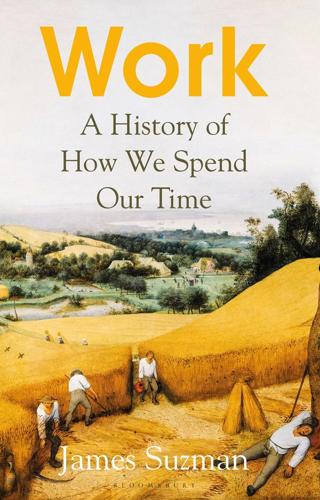
Work: A History of How We Spend Our Time
by
James Suzman
Published 2 Sep 2020
Reflecting the growing uncertainty about our automated future and the sustainability of our environments, there has been a recent efflorescence of manifestos and books proposing how we should or could organise things in the future. Some have sought to map out a path in broadly economic terms. Among the most influential have been the many that propose various models of ‘post-capitalism’, or those that insist we take economic growth down from its hallowed pedestal and recognise that the market is at best a poor arbiter of value, and when it comes to things like our living environment, a destroyer of it. The most interesting of these have been the ones that seek to diminish the importance we give to accumulation of private wealth.
…
Thomas Robert here, here, here Malthusian Society here Mapungubwe here Marie Antoinette, Queen of France here Marx, Karl here, here Master and Servants Act here mathematics here Mayans here, here, here Meadows, Dennis here measles here Melanesian islands here Memphis here, here mental health issues here Mesopotamia, Islamic conquest of here metalwork here Midvale Steel Works here Miller, George Armitage here mockery here Model T Ford here mole rats here, here money, origins of here, here, here monopolies here ‘moral harassment’ here Mount Carmel Project here Muaryan Empire here Mughal India here mutualism here, here Namibian independence here nationalism here, here, here Native Americans here, here, here, here, here Natufians here, here, here, here, here, here natural selection here, here, here, here, here, here see also sexual selection Navajo hunters here navigation here Nayaka here Neanderthals here, here, here, here, here, here, here Dorothy Garrod and here needs, ‘absolute’ and ‘relative’ here, here, here, here nettle soup here neuroplasticity here, here, here, here, here, here ‘New Class’ here newborns, human here Newcomen, Thomas here Newton, Sir Isaac here, here, here, here Nietzsche, Friedrich here Noah’s Ark here Nuer here nutritional deficiencies here, here Oates, Pastor Wayne here Occupy movement here ocean acidification here Oldowan tools here Olmecs here Olorgesailie flakes here Orangi Town here orang-utans here orcas here Organisation for Economic Co-operation and Development (OECD) here, here, here overwork here oxpeckers here oxygen, atmospheric here ozone layer here, here Pacific North West Coast peoples here, here, here Paiute here palaeogenetics, see genomic studies Palmyra here pangolins here Papua New Guinea here, here ‘paradox of value’ here parasite economy here parasites here, here parasitism here Parkinson’s Law here Parthenon here passerine birds here pathogens here Patterson, Orlando here Patterson, Penny here Pax Romana here peacocks here Pennsylvania Gazette here, here Persian Empire here persistence hunting here pestles and mortars here, here pests here Peterson, Nicolas here Pfeffer, Jeffrey here photorespiration here photosynthesis here, here ‘physiocrats’ here plant domestication here, here, here, here, here Plato here Polanyi, Karl here Pompeii here population growth here, here, here, here, here post-capitalism here post-industrialisation here, here potlatch ceremonies here probability here prokaryotes here, here prostitutes here public wealth, transfer to private hands here purposive (purposeful) behaviour here, here Putamoyo River here Pyramids here, here pyrite here Pythagoras here, here Qesem Cave here Quarternary Ice Age here Reagan, Ronald here renewable energy here Ricardo, David here, here Rigollot, Marcel Jérôme here ritual burial here robots here, here, here, here rock and cave paintings here, here, here, here Roman Empire, endurance of here Rome, ancient here, here, here, here, here, here, here, here, here collegia (artisan colleges) here, here, here, here trades and professions here and urbanisation here, here and wealth inequalities here Romulus and Remus here Roosevelt, Franklin D. here, here Rubik’s cube here rubisco here Russian Revolution here Sado, Miwa here, here Sahlins, Marshall here St Paul’s Cathedral here SARS here Savery, Thomas here, here scarcity, problem of, see ‘economic problem’ Schmidt, Klaus here, here Schöningen spears here Schrödinger, Erwin here, here, here ‘scientific management’ here, here, here sculptures here, here second law of thermodynamics here, here seduction here self-interest here Semliki River here services sector here, here sexual relationships, and work here sexual selection here, here shamans here, here, here Shelley, Mary here, here Shelley, Percy Bysshe here shellfish here, here Sherman Act here Sibiloi National Park here Sibudu Cave here ‘skull cult’ here skull morphology here slavery here, here, here, here, here, here slaves, ceremonial murder of here Smith, Adam here, here, here, here, here, here, here, here, here snapping shrimp here social hierarchies here social learning here social networks here social welfare here South Korea here, here, here space, domestication of here Spencer, Herbert here, here spinning frame here steam engines here, here, here sticklebacks here Stonehenge here, here, here, here, here structuralism here sugar here, here, here suicide here, here, here see also karo jisatsu Sumerians here, here, here sumptuary laws here Sunghir here, here supply and demand here survival of the fittest here sustainability here, here, here, here, here symbiosis here, here synaptic pruning here Takahashi, Mariko here ‘talent’, myth of here, here, here Tarahumara hunters here taxation here, here Taylor, Freerick Winslow here, here, here, here Taylorism here, here technological unemployment here television here Tenochitlán here termites here, here, here, here, here, here, here Thatcher, Margaret here theft, tolerated here theological conservatism here Thieme, Hartmut here Thirty Years War here thumbs, opposable here time, transformation in understanding of here ‘time is money’ (the phrase) here, here, here Tower of Babel here toxoplasmosis here trade unions here, here, here, here, here Tsimshian here Turnbull, Colin here UK Office for National Statistics here UN Climate Change Conference here underwork here universal basic income here universe, creation of here universities here upright posture, and vocal capabilities here urbanisation here, here and agriculture here emergence of new professions here neighbourhoods and trades here Uruk here, here, here, here, here, here Urukagima, King here US Treasury here vervet monkeys here vestigial features here vocal abilities here vultures here, here wages improved here and productivity here waterwheels here Watson, James here Watt, James here weaver birds here, here, here, here weed species here, here whales here, here, here wheat, wild here, here, here wheels, pulleys and levers here Wilde, Oscar here, here wildebeest here, here, here Windhoek here, here windmills here Wonderwerk Cave here, here Woodburn, James here Wordnet database here work definition here the word here workaholism here, here working hours here, here, here, here, here workplace engagement here World Debating Championships here World Economic Forum here Wrangham, Richard here writing here Xerxes here Yanomamo here Yolngu here Younger Dryas here, here Yukhagir here Zen Buddhism here Zeus here, here Zilliboti, Fabrizio here A Note on the Author James Suzman is an anthropologist specialising in the Khoisan peoples of southern Africa.
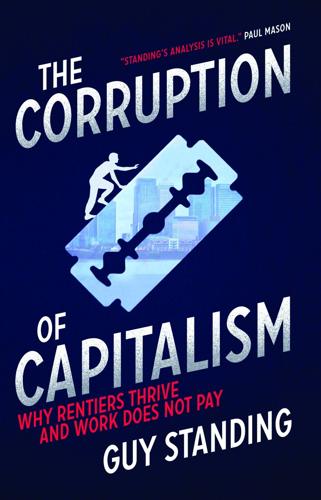
The Corruption of Capitalism: Why Rentiers Thrive and Work Does Not Pay
by
Guy Standing
Published 13 Jul 2016
While Paul Mason has interpreted the abundance of information as indicative of ‘postcapitalism’,52 the reality is actually a deepening penetration of capitalist logic and rules, in which rent seeking has been legitimised and strengthened by new global institutions and structures. Use of the word post-capitalism is revealing, as any word beginning with that prefix suggests a lack of direction. Rather, capitalism has mined the sphere of ideas as a lucrative source of income for rentiers. That is not postcapitalism, or a stepping stone in that direction. This leads to the second lie of rentier capitalism.
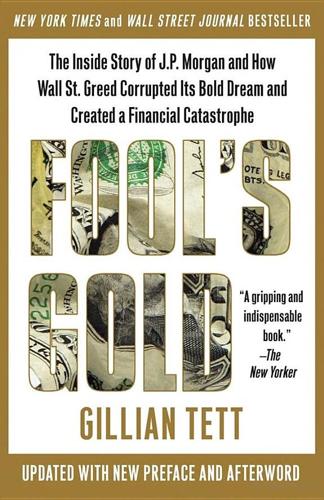
Fool's Gold: How the Bold Dream of a Small Tribe at J.P. Morgan Was Corrupted by Wall Street Greed and Unleashed a Catastrophe
by
Gillian Tett
Published 11 May 2009
They had been tasked by AIG with developing a capital-markets business, known as AIG Financial Products, which was based in London, where the regulatory regime was less restrictive. This was run by Joseph Cassano, a tough-talking trader from Brooklyn. Cassano was creative, bold, and highly ambitious. More important, AIG, as an insurance company, was not subject to the same burdensome capital reserve requirements as banks. That meant AIG would not need to post capital reserves if it insured the super-senior risk. Nor was the insurer even likely to face hard questions from its own regulators, because, though AIG’s insurance arms were regulated by state-level insurance groups, AIGFP had largely fallen through the cracks of oversight. It was regulated by the Office of Thrift Supervision, but OTS officials had only limited expertise in the field of cutting-edge financial products.

More Everything Forever: AI Overlords, Space Empires, and Silicon Valley's Crusade to Control the Fate of Humanity
by
Adam Becker
Published 14 Jun 2025
There are at least a couple of posts he called “Sequences” that lie outside that time period. 47 “Bay Area Overcoming Bias Meetup,” Meetup.com, archived February 14, 2009, at the Wayback Machine, https://web.archive.org/web/20090214184817/https://www.meetup.com/Bay-Area-Overcoming-Bias-Meetup/; Eliezer Yudkowsky, “Selecting Rationalist Groups,” LessWrong, April 2, 2009, www.lesswrong.com/posts/ZEj9ATpv3P22LSmnC/selecting-rationalist-groups. 48 Overcoming Bias, “About”; Ruben Bloom, “A Brief History of LessWrong,” LessWrong, May 31, 2019, www.lesswrong.com/posts/S69ogAGXcc9EQjpcZ/a-brief-history-of-lesswrong. 49 Archive of Eliezer Yudkowsky (@ESYudkowsky), Twitter, archived March 22, 2018, at the Wayback Machine, https://web.archive.org/web/20180322173754/https://twitter.com/ESYudkowsky. 50 Roko Mijic, “Solutions to the Altruist’s Burden: The Quantum Billionaire Trick,” LessWrong, July 23, 2010, https://basilisk.neocities.org/; RationalWiki, s.v. “Roko’s Basilisk/Original post,” last modified July 23, 2010, 21:03, https://rationalwiki.org/wiki/Roko%27s_basilisk/Original_post. Capitalization and formatting in the original. 51 Rob Bensinger, “A Few Misconceptions Surrounding Roko’s Basilisk,” LessWrong, October 5, 2015, www.lesswrong.com/posts/WBJZoeJypcNRmsdHx/a-few-misconceptions-surrounding-roko-s-basilisk. 52 Eliezer Yudkowsky, comment on “Roko’s Basilisk,” August 7, 2014, r/Futurology, Reddit, www.reddit.com/r/Futurology/comments/2cm2eg/comment/cjjbqqo/. 53 Yudkowsky interview. 54 Yudkowsky, HPMOR. 55 Ibid., ch. 6. 56 Eliezer Yudkowsky, “Above-Average AI Scientists,” LessWrong, September 28, 2008, www.lesswrong.com/posts/9HGR5qatMGoz4GhKj/above-average-ai-scientists (ellipses in the original). 57 Eliezer Yudkowsky, “Normal Cryonics,” LessWrong, January 19, 2010, www.lesswrong.com/posts/hiDkhLyN5S2MEjrSE/normal-cryonics. 58 Eliezer Yudkowsky, “Author’s Note 119: Shameless Blegging,” in HPMOR, March 10, 2015, https://hpmor.com/notes/119/. 59 Eliezer Yudkowsky, “Author’s Notes: Ch. 87,” in HPMOR, December 21, 2012, https://hpmor.com/notes/87/. 60 Luke Muehlhauser, “We Are Now the ‘Machine Intelligence Research Institute’ (MIRI),” Machine Intelligence Research Institute, January 30, 2013, https://intelligence.org/2013/01/30/we-are-now-the-machine-intelligence-research-institute-miri/. 61 Eliezer Yudkowsky, “What Do We Mean By ‘Rationality’?
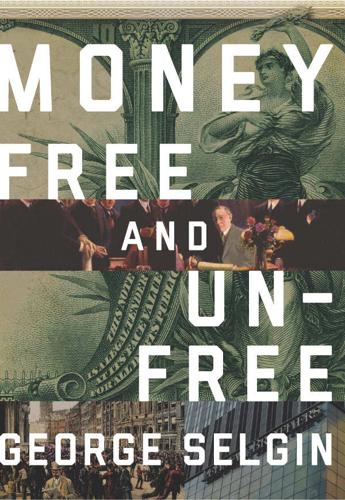
Money Free and Unfree
by
George A. Selgin
Published 14 Jun 2017
A rational dictator concerned with maximizing his survival in power, extracting seigniorage to the point where the marginal political resistance incurred per dollar of revenue is equal to that of alternative taxes, will then exploit the inflation tax even beyond the point where its marginal deadweight burden equals that of other taxes. Finally, to the extent that changes in the nominal stock of base money can be made unexpectedly, they impose an ex post capital levy on holders of the state’s unindexed nominal liabilities, including base money. Such a levy may yield substantial revenue rapidly, making seigniorage an especially valuable fiscal resource during an emergency that threatens the state’s survival, such as an insurrection or external military threat (Glasner 1997).
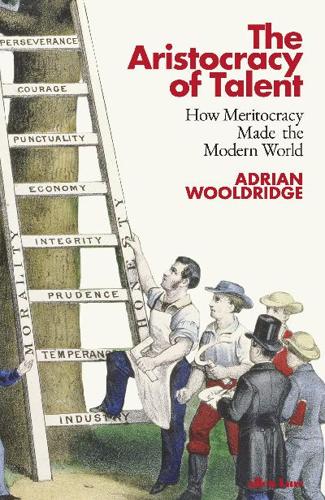
The Aristocracy of Talent: How Meritocracy Made the Modern World
by
Adrian Wooldridge
Published 2 Jun 2021
Companies not only increased their efforts to recruit more blacks but also required all employees to study white fragility and unconscious bias. The New York Times started to capitalize the word ‘Black’ and significantly increased the number of articles it devoted to ethnic minorities. The Washington Post capitalized ‘White’ as well as ‘Black’. The National Museum of African-American History displayed a graphic claiming that ‘white culture’ puts a higher premium than ‘black culture’ on punctuality, politeness, respect for authority, scientific thinking and rationality. Rewarding these qualities is therefore racist.